

Staying home may not feel heroic, but it is CHICAGO’S FREE WEEKLY SINCE 1971 | APRIL 2, 2020
CHICAGO READER | APRIL 2, 2020 | VOLUME 49, NUMBER 26
CITY LIFE
03 Letter A thank you from the Reader staff
FOOD & DRINK
04 Feature A former paramedic captures a cannabis collards recipe—and more—in his weedinfused soul food cookbook.
NEWS & POLITICS
06 Joravsky | Politics Silencing criticism of Trump during the pandemic only helps him win in November.
10 Isaacs | Culture The Chicago History Museum highlights the SunTimes archive online.
16 Dukmasova | Interview Weedman’s cannabis delivery chugs along amid the pandemic.
20 Poster Here’s why everyone should answer the census form.
ARTS & CULTURE
THEATER
22 Dance Hubbard Street’s management shuts down Lou Conte Dance Studio and blames COVID-19, but Conte and others raise questions.
FILM
24 Journal Now is the time to tackle some daunting cinema.
MUSIC & NIGHTLIFE
26 Feature Meet the YouTube singing star of the Hakha Chin diaspora

18 Marriage How engaged couples and wedding industry professionals are coping with corona-related cancellations.

19 Health Yogis, meditation facilitators, and wellness freaks tell us where to stream local classes.

12 Face Masks An Asian American photojournalist on choosing between protecting herself from a virus and facing discrimination

14 Cannabis As long as we shelter in place, medical cannabis is your most reliable legal weed option.
32 Shows of note A pandemic can’t stop the flow of great music. Our critics review releases that you can enjoy at home.
34 Early Warnings Rescheduled concerts and other updated listings
34 Gossip Wolf A new Chicago indie-rock comp benefits Brave
Space Alliance and Black & Pink, Anna Holmquist of Bad Songwriter Podcast drops an album with their band Ester, and more.
OPINION
36 Profit America’s dangerously ineffi cient response to COVID-19 is what happens when plutocrats— not politicians—direct public policy.
Savage Love Dan Savage says that open and poly relationships are canceled, unless your lovers live with you.
CLASSIFIEDS
ON
A NOTE ABOUT OUR COLORING BOOK
THE READER HAS published a coloring book to raise funds for the paper and the artists who contributed drawings to the e ort. The 52-page Reader Coloring Book is available in both PDF download and limited-edition print form.

More than 50 local artists contributed an amazing mix of illustrations, from legendary people (Gwendolyn Brooks, Frankie Knuckles, Svengoolie, Michael Jordan) to architecture
(the Art Institute lions, South Shore, Pilsen, Music Box, Fireside Bowl, Hollywood Beach, downtown) to fun illustrations of everyday Chicagoans, pets, transit, and more. There are even dancing hot dogs.
The book is $30 as a PDF download, and $45 for a PDF plus printed book (limited edition, mailed). Grab a copy at secure.actblue. com/donate/chicago-reader-coloring-book
TO CONTACT ANY READER EMPLOYEE, E-MAIL: (FIRST INITIAL)(LAST NAME) @CHICAGOREADER.COM
PUBLISHER TRACY BAIM EDITORS IN CHIEF SUJAY KUMAR, KAREN HAWKINS CREATIVE LEAD RACHEL HAWLEY
MUSIC EDITOR PHILIP MONTORO THEATER AND DANCE EDITOR KERRY REID CULTURE EDITOR BRIANNA WELLEN ASSOCIATE EDITOR JAMIE LUDWIG
SENIOR WRITERS MAYA DUKMASOVA, LEOR GALIL, DEANNA ISAACS, BEN JORAVSKY, MIKE SULA
EDITORIAL ASSOCIATE S. NICOLE LANE GRAPHIC DESIGNER AMBER HUFF
LISTINGS COORDINATOR SALEM COLLO-JULIN CONTRIBUTORS ED BLAIR, NOAH BERLATSKY, LUCA CIMARUSTI, MARISSA DE LA CERDA, MARI COHEN, JOSH FLANDERS, SHERI FLANDERS, JACK HELBIG, IRENE HSAIO, CATALINA MARIA JOHNSON, MONICA KENDRICK, STEVE KRAKOW, NOËLLE D. LILLEY, JAMIE LUDWIG, MAX MALLER, ADAM MULLINS-KHATIB, J.R. NELSON, JEFF NICHOLS, MARISSA OBERLANDER, MATTHEW SIGUR, CATEY SULLIVAN
DIRECTOR OF DIGITAL JOHN DUNLEVY DEVELOPMENT ASSOCIATE COLETTE WILLARD SOCIAL MEDIA COORDINATOR JANAYA GREENE MEDIA PARTNERSHIPS COORDINATOR YAZMIN DOMINGUEZ
STAFF AND SPECIAL PROJECTS ASSISTANT TARYN ALLEN
SPECIAL EVENTS CONSULTANT KRISTEN KAZA
ADVERTISING
312-392-2970, ADS@CHICAGOREADER.COM CLASSIFIEDS: CLASSIFIED-ADS@CHICAGOREADER.COM
SALES DIRECTOR PATTI FLYNN
VICE PRESIDENT OF SALES AMY MATHENY CLIENT RELATIONSHIP MANAGER TED PIEKARZ SENIOR ACCOUNT REPRESENTATIVES LENI MANAA-HOPPENWORTH, LISA SOLOMON ACCOUNT REPRESENTATIVES
GREG MCFALL, NANCY SANCHEZ
CLASSIFIED SALES MANAGER WILL ROGERS
NATIONAL ADVERTISING VOICE MEDIA GROUP 1-888-278-9866 VMGADVERTISING.COM
JOE LARKIN AND SUE BELAIR
DISTRIBUTION CONCERNS distributionissues@chicagoreader.com 312-392-2970

CHICAGO READER L3C
BOARD PRESIDENT DOROTHY R. LEAVELL
TREASURER EILEEN RHODES
SECRETARY JESSICA STITES
AT-LARGE SLADJANA VUCKOVIC
CONSULTANT CAROL E. BELL
READER (ISSN 1096-6919) IS PUBLISHED WEEKLY BY CHICAGO READER L3C 2930 S. MICHIGAN, SUITE 102 CHICAGO, IL 60616 312-392-2934, CHICAGOREADER.COM
COPYRIGHT
PERIODICAL
ALL
2020 CHICAGO
AT CHICAGO, IL
2 CHICAGO READER - APRIL 2, 2020 ll
37
38 Jobs 38 Apartments & Spaces 38 Marketplace
©
READER
POSTAGE PAID
RIGHTS RESERVED. CHICAGO READER, READER, AND REVERSED R: REGISTERED TRADEMARKS ® THIS WEEK
IN THIS ISSUE
THE COVER: PHOTO ILLUSTRATION BY SAMANTHA BAILEY. FOR MORE OF BAILEY’S WORK, GO TO THOUGHTSINBUTTERMILK.COM.
WHAT HAS THE Reader staff been up to in isolation? Last Friday we had a virtual staff happy hour complete with drinking games pulled from Cosmo magazine. We’ve had marathon video chats with our loved ones that went on so long we could tell which one of our friends or relatives could take at least a minute out of their pandemic sheltering to dust (we won’t name names). We all finally made a list of “projects to do during a pandemic,” and checked o “make a list of projects to do during a pandemic.” It’s safe to assume that everyone is watching Tiger King. And we’re all continuing to put out a paper every week. So first of all, thank you. It’s because of the support of our dedicated Reader readers that we’ve been able to last this long without talk of the “L” word (no, not that one, “layoffs”). And even though your financial donations are vital during this time, it’s about so much more than that. The tweets and e-mails and PDF downloads remind us that in these uncertain times, we’re still doing something that matters. That’s a sentiment that’s not only keeping us sane, but energizing us when every other new bit of information would have us running
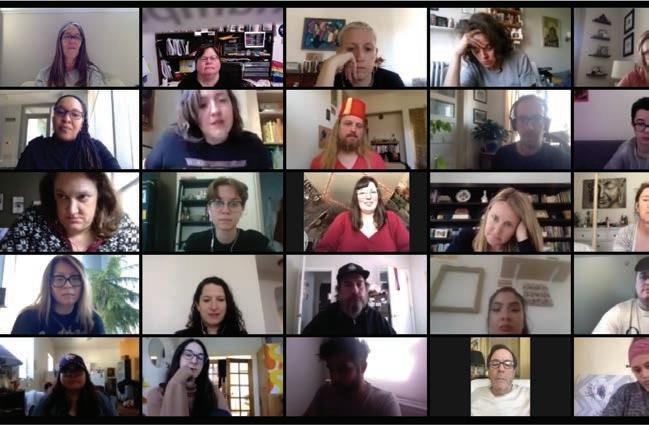
back to bed in tears. We remain dedicated to writing, editing, and publishing the unique and irreplaceable journalism we always have to make sure you, our readers, stay informed and entertained.

























That being said, we still need your help . No one can say when (or if) things will get back to “normal.” For us, normal means bars and restaurants are reopened, events are rescheduled, and our advertisers are able to pick up the pieces to recover even before they can float some money to the Reader . This means we have to wait until large groups can gather to reschedule our own events, which have provided us with another key source of income. Without these revenue streams, the Reader team—which includes 30 part- and full-time employees and dozens of freelancers—remains vulnerable. If you are able, please continue donating, buying coloring books and other special publications and souvenirs (we’ve got more up our sleeves!), downloading the weekly PDF, reading and sharing our stories, and sending us love. We can only get through this if we all support each other.










APRIL 2, 2020 - CHICAGO READER 3 CITY LIFE
READER STAFF Better together A letter from Reader staff The Reader staff channeling The Brady Bunch LISA SOLOMAN MANN IMPORTS & DOMESTICS ‘19 Toyota Corolla Hatchback XSE/Navi. ..........Loaded, 11K, Silver 22343R ......$18,995 ‘17 VW Passat 1.8T SE AWD ....................Auto., Leather Sunroof, Grey, 6484A ......$15,995 ‘14 VW Touareg V6 Sport AWD ..................Auto., Leather 56K, Black, 24294A ......$14,995 ‘16 Toyota Corolla S Prem. ..............Automatic, Full Power, 34K, Silver P6381 ......$13,995 ‘13 Hyundai Sante Fe 2.0T AWD .......................... Automatic, Black, 23734A ......$11,995 ‘11 Honda CRV EX AWD ..............................Automatic, Sunroof, Silver, 24311A ........$9,995 ‘14 Toyota Prius Two ..............................Automatic, Full Power, Silver, 23783A ........$8,995 ‘08 Honda CRV EX....................................Automatic, Sunroof, Red 67K, 24183A ........$8,995 ‘11 Honda Accord LX ................................Automatic, Full Power, 67K, 24134A ........$8,995 ‘09 Mini Cooper S....................Automatic, Full Power, 58K, Dark Silver, 24393A ........$7,995 ‘11 Hyundai Elantra Ltd. .................... Automatic, Loaded, 51K Black 23930B ........$7,995 ‘09 Honda Fit Sport ................................Automatic, Hatchback, Black, 23892A ........$7,995 ‘13 Kia Soul+ ............................................Automatic, Full Power, Moss, 24176A ........$6,995 ‘11 Hyundai Sonata Hybrid Prem. ................Auto., Full Power, Blue, 24133A ........$6,995 SUBARU FORESTERS ‘18 Forester Prem. ..........Automatic, Sunroof, Heated Seats, White, 24152A ......$20,995 ‘17 Forester Prem. ..........Automatic Sunroof, Heated Seats, Silver, 23242A ......$19,995 ‘16 Forester Touring ................Automatic Sunroof, Leather, Silver, 23651A ......$18,995 ‘14 Forester Prem. ..........Automatic, Sunroof, Heated Seats, White, 24116A ......$14,995 SUBARU OUTBACKS ‘18 Outback 2.5i Automatic, Full Power, Eyesight, White, P6493 ......$19,995 ‘16 Outback Prem. Automatic, All Weather, Alloys, Black, 24117A ......$18,995 ‘15 Outback Ltd. 3.6R Auto., Leather, Sunroof, Alloys, Tungsten, 23683A ......$17,995 ‘14 Outback Prem. Auto., Full Power, Alloys, Silver, P4891 ......$13,995 ‘12 Outback 2.5i ......................................Automatic, Full Power, Black, 23880A ........$8,995 SUBARU CROSSTREK / ASCENT / WRX ‘19 Ascent .................................. 8 Passenger, Sunroof, Eyesight, 4K, Grey, P6528 ......$26,995 ‘18 WRX Prem. ..........................................Automatic, WR Blue Pearl, 23K, P6506 ......$22,995 ‘16 Crosstrek Ltd. .............................. Automatic, Leather, Sunroof, Blue, P6470A ......$18,995 EvanstonSubaru.com 3340 OAKTON - SKOKIE • 847-869-5700 A+ RATED NO SECURITY DEPOSIT! $2,995 due at signing. LFB-02 #0361 AUTOMATIC, Roof Rails, Alloys EyeSight, All-Wheel-Drive $95 1 0% TOP-QUALITY INSPECTED USED CARS & SUV’ S NO SECURITY DEPOSIT! $2,995 due at signing. LDB-01 #0292 AUTOMATIC, Back-up Camera EyeSight, All-Wheel-Drive *19$8 36 MONTH LEASE * 36 MONTH LEASE * 36 MONTH LEASE 0% NO SECURITY DEPOSIT! $2,995 due at signing. LRA #73012 All-Wheel-Drive, 17’’ Alloy Wheels, Apple Carplay / Android Auto $74 1 0.9% *Add tax, title license and $300 doc fee. 0% financing for 63 months. Monthly payment of $15.87 per $1,000 borrowed. Finance on approved credit score Subject to vehicle insurance and availability. *Lease on approved credit score. Lease, 10k miles per year, 15 cents after. Lessee responsi-ble for excess wear and early termination of lease. End of lease purchase option; Outback $17,806. Crosstrek $13,198, Forster $16,495. Ends 4/30/2020 When A Great Deal Matters, Shop Rob Paddor’s... NEW DESIGN NEW DESIGN Voted “Best Auto DeAlership ” By CHICAGO Voters’ Poll 2019 Evanston Subaru in Skokie NEW 2020 SUBARU FORESTER NEW 2020 SUBARU CROSSTREK NEW 2020 SUBARU OUTBACK 0 0 0 0 FORESTER OUTBACKASCENT IMPREZA 0% FOR 63 MONTHS FOR A LIMITED TIME 9:00AM-6:00PMNEW REDUCED HOURS MONDAY-SATURDAY •SALES •SERVICE •PARTS We are vigilant in upholding the practices as recommended by the CDC SALES BY APPOINTMENT ONLY EMAIL: EPADDOR@EVNSI.COM OR CALL: 847-869-5700
FOOD & DRINK
more in the community.
FOOD FEATURE
Mrs. Green’s cannabis collards will melt your troubles away
A former paramedic captures that recipe—and more—in his weed-infused soul food cookbook.
By MIKE SULA
Mrs. Green is a 70-something Roseland grandma living with her weed-dealing nephew who keeps her well supplied with bud. Her children—a military vet with PTSD and a drinking problem, a pastor who has lost his spirit, and a lawyer with cancer—all disapprove of her habit. But that all changes after Christmas dinner when she accidentally spills cannabis oil into the collards and everybody’s problems drift away.
That’s the premise behind Cerrone Crowder’s first novel, Pass the Greens: An Urban Comedy , and its follow-up, Pass the Greens: A Cannabis Infused Soul Food Cookbook, a collection of 57 recipes inspired by his own mother’s and grandmother’s cooking.
Crowder, a 34-year-old former paramedic turned cannabis entrepreneur, says his grandmother Mildred was the exact opposite of Mrs. Green, but she was the inspiration behind the books. The Sunday school teacher and mother of five was suffering from advanced Alzheimer’s disease in 2014 just as Illinois’s Medical Cannabis Act was enacted.
“She was not verbal,” he says. “Either she would sleep all day and be up all night agitated. She was a small lady but would become physically frustrated. She reverted to a child. She was taking all kinds of antipsychotic medications, and the doctor said there was nothing they could do to help her.”

Crowder had come across a 2014 study published in the Journal of Alzheimer’s Disease that indicated small doses of THC could help promote the removal of the amyloid plaque deposits in the brain associated with the disease. But “all we knew about was smoking blunts and joints in our community,” he says. “You can’t get grandmother into that. Medical cannabis was very taboo. It was not talked about at all.”
Still, Crowder made a case to his grandmother’s doctors and they agreed to consider signing o on an application for a medical cannabis card. But by then it was too late. He was working a shift in the ER when they brought her in after suffering a cardiac arrest. A few days later she was gone.
Crowder, who grew up in Roseland and Calumet City, wasn’t into weed when he was young. “We didn’t have many doctors, nurses, no police officers. All we had was the dope man. They weren’t really pushing crack—weed became really popular in the 90s. These guys were businessmen. They were entrepreneurs. They all wound up being arrested or killed, which is why I stayed away from it until I saw a legal opportunity.”
Since his grandmother’s death, Crowder has started a nonprofit called the D.O.P.E. House (Delivering Opportunities for People Everywhere) that’s dedicated to providing equitable medical marijuana access, resources, education, and employment in lower-income and minority communities. And he won a state responsible trainer license that allowed him and his mother Demetria to start DLC Training LLC, which provides the required training for dispensary agents in Illinois (they’ll be starting free online training sessions during the COVID-19 shutdown).
At the cannabis-related meetings and classes he attended over the years he was often the only Brown face in the room, so he took community college publishing courses and got to work on a book to help African Americans access the Green Rush. But progress on that project came in fits and starts, and though he eventually published Budding Jim Crow: A New Strain of Prejudice last year, he first turned to comedy, which he reckoned would resonate
After publishing Mrs. Green’s origin story, he and his mother began joking about medicating their own family recipes. And then they stopped joking. “I was trying to find something people in our culture could enjoy as well and give it a di erent twist, because everything online when I first started researching was really simple cookies and brownies. It wasn’t much.”
Crowder’s mother pulled out the scratch banana pudding recipe that only got dusted o for birthdays and other special occasions. Then there was Mildred’s seven-layer salad: “First time I knew salad could be good.” Deeppot gumbo, jerk pork chops, mac and cheese, dirty rice, sweet potatoes, and cornbread were all updated with cannabis infusions—and of course his granny’s greens (get the recipe at chicagoreader.com). “It was pretty emotional because I was able to relive my memories of my grandmother through my mother in the kitchen.”
There are a half dozen foundational cannabis infusion recipes in the book to medicate the dishes Mrs. Green style—cannaoil, cannabutter, cannamilk, cannahoney, cannamayo— along with instructions for decarboxylating, or heating your flower to activate the cannabinoids. Crowder says the book made Amazon’s condiment and ethnic cookbook bestseller lists when it was first published in 2016, but since then it’s taken off organically without much marketing. “When I first put it out I was really trying to pass it out on the south side just for educating people. It really does great around Thanksgiving and Christmas—and always 4/20.”
Crowder is currently awaiting word on the cannabis transporter license he applied for, and he wants to go for a cannabis infuser license but the capital required for that is formidable. In the meantime he and Demetria are building another business to deliver jarred brownie and cookie mixes—just add your own cannabutter—and Crowder is working on another book he hopes will open a dialogue about cannabis in the Black church, because “that’s where a lot of sick people are.”
That one’s inspired by a passage from Genesis: And God said, Behold, I have given you every herb bearing seed, which is upon the face of all the earth, and every tree, in the which is the fruit of a tree yielding seed; to you it shall be for meat. v
4 CHICAGO READER - APRIL 2, 2020 ll
@MikeSula Chicago's Free Weekly Since 1971 We Couldn't Be Free Without You— Support Community Journalism chicagoreader.com/donate u THE Find hundreds of Reader-recommended restaurants at chicagoreader.com/food
NEWS & POLITICS


POLITICS
Wake up, Dems
Biden can’t beat Trump if he plays Mr. Nice Guy.
By BEN JORAVSKY
It was about a week ago that I wrote a post ripping Joe Biden for disappearing when we needed to hear his voice of Democratic opposition the most: right in the middle of a pandemic in which President Trump’s negligence, indi erence, and willful ignorance were risking lives.

Now that Biden has started giving daily updates and interviews, I wish he’d go back into hiding.
Oh, calm down, Biden Bros—I’m kidding. Just having a little fun at your guy’s inability to express a thought.
In general, I think articulateness is overrated in politics.
Half the time Donald Trump sounds like a doped-up lunatic—and his supporters are willing to die for him. At least, Jerry Falwell Jr.
endangered hundreds of other people’s lives by refusing to close Liberty University, apparently because he wanted to demonstrate how much he didn’t believe the liberal hype about COVID-19.
Closer to home, Chicagoans would still be reelecting Mayor Daley, even though half the time no one knew what he was trying to say.
So, no, I welcome Joe Biden’s reemergence from his cave. And, yes, I plan to vote for him in November. I’d vote for any of the Democratic candidates against Trump. Even, gulp, Bloomberg—and he’s not even a Democrat.
Though while I’m on the subject—and before I get to what I really want to discuss—hey, Biden Bros, help me decipher what your guy’s getting at in a recent interview about the economic fallout of shutting down the economy.

6 CHICAGO READER - APRIL 2, 2020 ll
Time to put on your game face, Uncle Joe, so the Trumpsters don’t wipe that smile off your face.
GAGE SKIDMORE
He was asked: “Are you at all concerned, as Trump said, that we cannot let the cure be worse than the problem itself?”

And he answered: “We have to take care of the cure. That will make the problem worse no matter what. No matter what.”
Check it out yourself—trying to decipher this passage is a fun game you can play while you’re self-isolating.
I think I know what he’s trying to say. At least, I understand every word he utters, but when I put the words together, they make no sense. It’s like an obscure line from a Haruki Murakami novel that I read over and over, hoping that the deeper meaning will come to me in a moment of awakening.
So far, no luck.
And now on to what I really want to discuss.


What’s more alarming than how Biden talks is what he—and his followers—seem to believe about winning elections.
They think they can beat Trump by playing nice. When I wrote that Biden should forcefully speak up against Trump’s incompetence and negligence, I received several responses along the lines of . . .
“Not only Republicans but also swing voters (who we need to win in November) would feel it’s inappropriate for a political adversary to appear to take advantage of the pandemic. It’s the same reason Obama isn’t doing it.”
Sigh.




I’m not really sure what political planet my Biden-loving friends occupy. But it’s not the one Biden will be running on come November.
And that brings me to Sarah Longwell, a 47-year-old Republican political operative who can’t stand Trump.
Longwell was the topic of a fascinating profile in the New Yorker by Susan B. Glasser that I urge everyone to read.



According to Glasser, Longwell learned the tricks of her trade working for Richard Berman, a “legendary Republican lobbyist turned P.R. man” who “specialized in helping food and beverage companies by setting up industry front groups to fight regulatory e orts.”

Not exactly Mr. Nice Guy.
A few years ago, 60 Minutes profiled Berman, portraying him “as the ‘Dr. Evil’ of the Washington influence game, willing, on behalf of a range of undisclosed corporate clients, to attack workers, healthy-eating proponents, and even activists for Mothers Against Drunk Driving.”

Was Berman offended by the profile? Hell,










NEWS & POLITICS
 no.
no.



Glasser writes: “He keeps a ‘Dr. Evil’ nameplate on his desk. ‘If they call you Mr. Nice Guy, would that be better?’” Berman asked her. “‘I don’t think so.’”









Wait, wait—there’s more.
“Berman taught Longwell to discredit the opposition before it discredits you; to be edgy, memorable, and funny; and to always play o ense, because, as Longwell [once] put it . . . ‘defense over time loses.’”
Are you paying attention, Democrats?
Berman “devised an acronym for the firm’s approach to ‘managing’ public opinion: FLAGS, for fear, love, anger, greed, and sympathy. Of those, he told me, fear and anger are the most e ective.”

This is the world Biden will be running in. Trump and his operatives have mastered Dr. Evil’s playbook—you best believe they’re already looking for ways to take advantage of the pandemic to win in November.
The Trumpsters certainly aren’t sitting back and saying, Oh, we must not say nasty things about Biden because it might upset a swing voter in the suburbs.
When the time comes, they’ll scare those swing voters into voting Trump by turning Biden into the second coming of Hugo Chávez. Fair or not.
But back to Longwell . . .
From the moment Trump took office, she’s been leading a small but influential cadre of Republicans plotting to end Trump’s presidency. The so-called Never Trumpers.

They hoped to convince enough Republican senators to impeach him. But, as you know, the Republicans chickened out—except for Senator Mitt Romney.
As disappointed as Longwell was by the Republican cowardice, she was also ba ed by Democratic timidity. “They never really invested in impeaching,” she said.



The Dems didn’t run impeachment ads in key swing states because—oh, you know what’s coming—they didn’t want to o end independent voters by looking too partisan.
If only centrist Dems would fight Trump as hard as they fight Bernie.
“‘The Democrats played no o ense and the Republicans played a ton of o ense, ultimately putting the Democrats on defense,’ Longwell said. For a disciple of Berman, that was unforgivable. When you are on defense, you lose.”
As they will lose in November, if Biden and his enablers don’t wake the hell up. v
@joravben
Important Reader News









Due to business closings and for safety purposes, the Chicago Reader is going biweekly with a print run to 600+ locations, including our box route. On the o weeks (April 9, 23, May 7) the Reader is just being distributed as a free PDF, with a small press run to ful ll subscriber and library mailings.



We are also making a limited number of copies available for special short-term subscriptions, 12 weeks for $50, and every week’s issue will be mailed to your home.


Just a few hundred copies will be sold of these very limited souvenir editions of the Reader:

APRIL 2, 2020 - CHICAGO READER 7ll
secure.actblue.com/donate/chicago-reader-print-12
Thank you, The Reader team Find the full curated PDF download of the Reader at by Wednesday each week. chicagoreader.com/issues
From ‘digital first’ to ‘digital only’—for now
The president of the Chicago History Museum says goodbye to a tenure bookended by closures and reinvention.
 By DEANNA ISAACS
By DEANNA ISAACS
At this outlier moment in our history, every story is about coronavirus—even last week’s perfectly staid announcement that Chicago History Museum president Gary T. Johnson will be retiring at the end of the year.
It followed, by ten days, the announcement
that the museum, like every other cultural venue in the city, was closing its doors until further notice.
Johnson says neither the pandemic nor an atypical $234,000 operating budget shortfall last year influenced his decision. After 15 years on the job, in a position he took after a
28-year career as an attorney, the retirement date’s been on his and his board’s calendar for a while. As for the fiscal red ink: it’s a relatively small deficit, he says, after 11 years of operating in the black.
Thanks to the virus, however, Johnson’s tenure will be bookended by closures. When he started in 2005—taking over for Lonnie Bunch, who left to become founding director of the National Museum of African American History and Culture, and now heads up the entire Smithsonian Institution—the museum was about to go into a nine-month shutdown for a reconstruction that also became a reinvention.
The museum, founded in 1856, is the oldest cultural institution in the city, and it had retained its original name: the Chicago Historical Society. Johnson was dismayed by the fact that many people thought it was a private club—a problem the board had long been debating. When it reopened in 2006—tradition be damned—the “Society” had a new, friendlier moniker: the Chicago History Museum.
Johnson has visited 350 Chicago public schools with artifacts from the Great Chicago Fire in tow; he says it’s what he’s loved most about his job. When asked for historical precedents to the coronavirus crisis, the fire, “one of the three most famous fires in world history,” is what first comes to mind. (The others? Rome and London.)
“It left a third of the population homeless, but the city quickly sprang back,” he says. On the other hand, and perhaps more to the point, there was also the Depression: “an extended event that hit the workforce and businesses very hard.” The museum’s been a national leader in programming about the history of the LGBTQ+ community (an initiative that Johnson says began before he arrived), and he’s overseen a significant expansion of CHM’s photography collections. Among them: the complete body of work by the architectural photography firm Hedrich-Blessing and, after a 2018 purchase of about fi ve million images, the entire archive of Chicago Sun-Times photographs from the 1940s through the early 21st century.
There’s a sorry tale behind that acquisition. In 2009, the financially strapped SunTimes sold its photo archive to John Rogers, a sports memorabilia dealer from Arkansas. Rogers had become a celebrity of sorts a year
earlier when he purchased a Honus Wagner baseball card for $1.6 million, and was also developing a newspaper image business. He would pay newspapers for their negatives and prints and, as part of the deal, would promise to digitize their collections and give them a searchable archive. The papers would usually retain the copyrights; Rogers would get to keep the negatives and prints.
In 2010, the Reader ’s Michael Miner wrote about vintage Sun-Times photos showing up on eBay, priced at less than $10. By 2014 (a year after the Sun-Times decided it didn’t need photographers and infamously fired its entire prizewinning photo staff), Rogers’s businesses were failing and the FBI was raiding his Little Rock home. In 2017, he was sentenced to 12 years in prison for selling items that included a fake Heisman trophy.
His assets—including the Sun-Times archive—were liquidated in a bankruptcy sale and purchased by another dealer. When CHM heard about that, Johnson says, they feared the collection would be sold off piecemeal and, in effect, vanish. With donor support, they stepped in and bought it for $125,000.
The first exhibit drawn from the Sun-Times collection was scheduled to debut March 28; now we’ll have to wait until the museum reopens to see it. But a chunk of other photos from that collection have been posted on the CHM website—part of Johnson’s decision, a few years ago, to be a “digital first” museum. The photos look to be mostly from the 1970s: Vietnam war protests; Apollo astronauts on parade; a Gay Liberation Front rally. Oddly, many of them lack a credit for the photographer; CHM vice president John Russick says that likely reflects the state of the collection when they got it.
Johnson says the museum recently donated its stock of personal protective equipment—used, for example, when working with musty materials—to Stroger Hospital. He’s confident that this venerable institution can weather the shutdown, though it’ll be painful.
“It’ll be interesting to see how people become re-accustomed to being in places where there are lots of other people,” he says. “Will they shy away from a place that might be crowded? Or, on the other hand, will they crave it so much that they’ll celebrate that they’re in a welcoming place with other Chicagoans?
“To be determined.” v
@DeannaIsaacs
10 CHICAGO READER - APRIL 2, 2020 ll NEWS & POLITICS
Gary Johnson COURTESY THE CHICAGO HISTORY MUSEUM
CULTURE
APRIL 2, 2020 - CHICAGO READER 11ll WE COULD ALL USE A WIN Play at home on our app or online at IllinoisLottery.com
Wearing a mask while Asian
On choosing between protecting yourself from a virus and facing discrimination
By PAT NABONG
Last week, I walked around my neighborhood looking to photograph other people who were still working amid the pandemic. I spotted a U.S. Postal Service carrier almost half a block away and waved to get her attention. I smiled, but she probably couldn’t see it behind the face mask I was wearing. It was a surgical mask, which was sent from my roommate’s mother in the Philippines.
“Hi!” I said. I took a step closer, but remained more than six feet away. As soon as I did that, she raised her hand to signal for me to stop.
“You can say what you need to say from where you are!” she shouted.
Taken aback, I paused. Even though I’m used to rejections from people I try to interview, this level of aggression was new. Then I realized she probably thought I was sick.
As a visual journalist, I don’t have the luxury of always working from home. My editor
was adamant that I wear a mask in the field, and I knew it was my responsibility to minimize the risk of unknowingly transmitting the disease to others in case I was an asymptomatic carrier. While working on assignment over two weeks ago without a mask, I realized that even though I try my best to maintain six feet between myself and the person I’m talking to, old habits die hard; many people still naturally gravitate towards me. In uncertain times like this, it’s good to have that extra layer of protection for them and for myself. The best way to flatten the curve is to behave like you’re sick.
When I told the mail carrier that I didn’t have the virus, that my face mask was only a precautionary measure, she lightened up. I tried to interview and photograph more people throughout the day and many declined, seemingly intimidated by me. I felt eyes on me as I entered a convenience store. I felt
eyes on me as I stood outside a McDonald’s. And I felt eyes on me as I walked around the dollar store. It was the same feeling of awareness I had while wearing a mask on the Red Line about a month ago—when there were only two COVID-19 cases in Illinois— because I wasn’t feeling well. So the next day, I still worked with a mask on, but I used a scarf to cover it up. Almost everyone I talked to was receptive.

There have been over 650 incidents of discrimination against Asian Americans in the U.S. since March 18, according to Stop AAPI Hate, which shared that data with NBC Asian America. Tiffany Chen was wearing a face mask in a parking lot in Irvine, California, on March 20. A person on the phone, who was two cars away from her, saw her and said, “Oh my God, this Asian lady has a face mask on.” Chen was appalled, especially since there’s nothing scandalous about wearing face masks in Taiwan.
“For Asians, it’s kind of like Public Health 101 to have a box of face masks in your house,” Chen, who lived in Taiwan for roughly 15 years before moving to Chicago, told me. “My mom always told me that if you’re sick wear a face mask so that you don’t give it to someone else. . . . I wear a face mask to protect others more than protecting myself.”
Culture dictates how people react to those wearing face masks, according to experts and those I talked to.
“It’s a little freaky still,” said Charlie Grant, who isn’t Asian American. He replied via direct message to a question I asked about wearing masks on Twitter. “It’s not something I’m used to seeing out in public, so it’s taken some adjustment. I think they are probably doing the right thing by protecting themselves and others by wearing one.”
Emma Francis, a photojournalist who is also not Asian American and is based in Paris, told me her natural reaction is to “move away from [people wearing masks].”
Francis doesn’t wear a mask in public partly because she doesn’t want to take away resources that are already in short supply from medical professionals, she said.
Many people I know, including myself, have to ration the meager number of face masks we have from several months ago.
But Jiayan Shi, my former roommate, said she feels more unsafe when she interacts with someone who isn’t wearing a mask. Shi started wearing a mask in Chicago in early February, when COVID-19 cases were increasing in her hometown, Shanghai.
The impression that those who wear masks are sick is partly due to the Centers for Disease Control and Prevention’s recommendation that only people who are ill should wear them. The scientific community has mixed views on the effectiveness of masks in protecting people from COVID-19. But in some cities, wearing a face mask is now mandatory, especially since people can be asymptomatic carriers. In many Asian countries, masks are not only encouraged during a pandemic, they’re commonplace.
“No one will really pay extra attention to you [if you are wearing a mask] because it is very common in China,” said Shi. “We don’t have a concept that, you know, anyone wearing a mask is sick.”
People in China and Taiwan wear masks to filter out air pollution, to protect themselves from the cold, and to hide their faces when they don’t have makeup on, Shi and Chen both told me. In Japan, a mask can be a fashion statement. My mother, who lives in Metro Manila, a dense cluster of cities in the Philippines, wears a mask to protect herself from smokers.
“I feel like a lot of people are sort of stigmatized wearing masks,” said Yiwen Lu, an international student at the University of Chicago. Lu said she’s debated wearing a mask on the bus. “I have heard a lot of horrible things about people discriminating against Asian people who wear masks, so I chose not to.” Shi, however, told me she would rather endure discrimination than get infected or infect others.
A week after my encounter with the mail carrier, my roommate found out that she was exposed to three people who were in contact with a possible COVID-19 patient. The next day, I saw a sign on my next-door neighbor’s apartment door warning that she was exposed to someone with COVID-19.
I had no way of knowing that then. But I do know that a world where Asian Americans have to choose between protecting themselves from a virus and minimizing the risk of being discriminated against is unimaginably dangerous. v
12 CHICAGO READER - APRIL 2, 2020 ll
@pat_nabong NEWS & POLITICS
David Mancao wears a mask while lining up for groceries at Costco in Lincolnwood, Illinois.
PAT NABONG
NEWS




APRIL 2, 2020 - CHICAGO READER 13ll BE COUNTED. 2020 CENSUS Your par cipa on matters. Questions about the 2020 Census? We have answers. Text us your questions to 987987. Complete your Census form online: my2020Census.gov
You might want a medical card
As long as Chicago shelters in place, it’s your most reliable legal weed option.
By ANDREA MICHELSON
When asked about medical cannabis cards in a postlegalization state, cannabis-friendly doctor Rahul Khare said there are two di erent stories to be told: before the coronavirus pandemic and after.
Before the rapid spread of COVID-19 turned the world upside down, your decision to get a medical card likely depended on a) whether
you could prove you had one or more of 50plus qualifying conditions and b) whether you could a ord a couple visits to the doctor and a $100 application fee. If you answered yes to both of these questions, you’re still just a couple of forms away from reduced prices, shorter lines, and a wider range of cannabis products.
But now, getting a med card has become the most reliable way to legally buy weed in Chicago for the foreseeable future. When Governor J.B. Pritzker ordered that nonessential businesses cease operations starting March 21, medical cannabis made the cut as an essential good, and most if not all of the ten dispensaries that usually serve Chicago’s
recreational cannabis consumers voluntarily stopped or limited selling to recreational customers.
At Innovative Wellness, a cannabis-focused clinic in Lincoln Park, Khare said he’s seen many patients who started out buying cannabis recreationally but now use it for medical purposes, whether they have a card or not. “All of a sudden, the people who are recreational [who were] getting cannabis without their cards, that were using it medically, are freaking out,” Khare said.
Now that recreational adult use of cannabis is legal in Illinois, he’s seen people emboldened to finally get their medical cards. “I hear that a lot. It’s like, ‘Oh, I know I’ve been using this medically but I just never wanted to get my card. But now that it’s legal, I feel it’s OK to,’” Khare said.
Since January, Khare’s practice has seen a 50–60 percent increase in patients seeking physician certifi cation for medical cannabis cards. Cannabis users have plenty to gain by getting a med card, and saving money on taxes may be the most tangible benefit.

Abigail Watkins, marketing manager at Dispensary 33 in Andersonville, said there’s a 2.25 percent pharmaceutical tax built into the price of all cannabis products at any medical or recreational dispensary in Illinois. But based on factors like potency, type of product, and local excise taxes, recreational customers can end up paying an additional 20–40 percent of retail price. That’s the di erence between a $60 eighth and an $80 eighth, Watkins said.
“If someone is a recreational customer and is coming in over and over again but would qualify for a medical card, we would always suggest that they get one,” Watkins said.
Some people might be surprised to find that they qualify for a medical card. Social media influencer Elise Swopes said when she applied for a medical card last year, she wasn’t sure what condition to list.
“For me, I was like, I really want this card but I don’t want to have to pretend that I have something,” Swopes said. She arranged a video call with a therapist at Innovative Wellness to see if she might qualify for a medical card. After discussing a lifetime of experiences that contribute to her present-day anxiety, Swopes was prescribed cannabis to help with post-traumatic stress disorder.
Swopes didn’t think she had PTSD when she began the application process. Some other patients said the diagnosis is used as
14 CHICAGO READER - APRIL 2, 2020 ll
DAVID
ALVARADO THE CORONAVIRUS EFFECT
NEWS






a catchall for mental health disorders like anxiety and depression, which are not on Illinois’s list of debilitating conditions for medical card eligibility. But Swopes used her new diagnosis as an opportunity to learn more about cannabis and mental health, continuing to see her therapist for several sessions after her first appointment.
Even after Illinois legalized recreational cannabis, Swopes said she felt like she still benefited from her medical card. As a medical patient, she was able to skip the line at MOCA, her dispensary of choice, and she established a rapport with budtenders there. She had access to a wider range of edibles, tinctures, and balms, although she said cannabis flower is pricey even for medical patients.
Nick Disabato, a web designer who got his medical card last year, said he also noticed that the flower selection at most dispensaries has been lacking since Illinois went recreational.
“It’s the equivalent of you going to a liquor store and you’re looking at the craft beer selection, and literally all they have for you is Bud Light and Goose Island 312,” Disabato said. “I’m like, ‘OK, well I’ve done these, that’s cool. Got any stouts or Belgians?’”

For medical patients dissatisfied with what dispensaries have to o er, Illinois has another option for getting bud that’s open exclusively to them: home growing. Medical marijuana patients can grow up to five plants at home under Illinois law. Datrianna Meeks, a product designer who budtends part-time at MOCA and has a medical card herself, said this unique aspect of Illinois’s medical cannabis program allows patients to take control of their own medicine.
Meeks said having some agency in what she’s smoking was one thing that drew her to the legal weed market in the first place.
“I would rather take matters into my own hands and have more control and information about the products that I’m using, which you defi nitely don’t get when you’re buying o the street,” Meeks said.

With Chicago’s recreational dispensaries closed until at least April 7, buying off the street will be the only option for many cannabis users. Even that avenue is uncertain, as some dealers are raising their delivery minimums and others may just stay home.
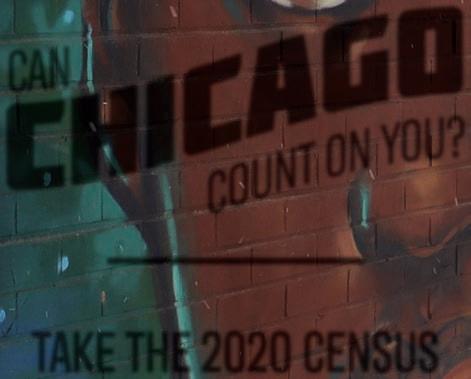

But clinics like Innovative Wellness continue to consult with potential medical patients—they’re just doing it virtually. Last month, the Illinois Department of Public Health announced that all examinations for


POLITICS

medical cannabis certifi cation may be done via telemedicine, temporarily eliminating the need for an in-person appointment.

Someone who is able to book an online consultation with a physician could visit a medical cannabis dispensary just a few days later, Khare said. Since February 1, the online application has been streamlined so patients receive a printable, temporary medical card the morning after they apply.

Even though the process for getting a medical card is quicker than ever, Watkins said some of the customers she’s seen at Dispensary 33 can’t a ord to pay the application fee and medical bills up front. Application fees range from $100 to $250 for most people, depending on how long the card lasts, with reduced fees as low as $50 for a year of coverage for veterans and people with disabilities.
“It is somewhat of a privilege to be able to have a medical card,” Watkins said. “And living with a chronic illness is a huge financial hardship for people already.” v
@amichelson18

APRIL 2, 2020 - CHICAGO READER 15ll
&
howardbrown.org/2020census C M Y CM MY CY CMY K Dr. Mauricio Consalter has been serving medical cannabis patients since 2015 and is now expanding his practice to include a wider range of treatment options for his patients with intractable chronic pain and mental health disorders. If you'd like more information about adding medical cannabis or infusion therapy into your wellness plan, contact us today! Telemed Available! www.neuromedici.com 312-772-2313 Yourpartnersinhealthandwellness. Chicago's Free Weekly Since 1971 We Couldn't Be Free Without You— Support Community Journalism chicagoreader.com/donate
By MAYA DUKMASOVA
At the end of 2019 the Reader profiled Weedman, who runs a local cannabis delivery business. Back then the biggest threat to his livelihood was the impending legalization of recreational pot in Illinois. Weedman wasn’t worried, though, and even expected his business to improve as weed use was normalized and people tired of paying top dollar and standing in line at dispensaries. Now, as a threat to life itself hangs in the still city air, Weedman’s still pretty zen. I checked in with him about what it’s been like to deliver cannabis in the time of coronavirus.



Before we get into more recent developments, how has business been going since the beginning of January? Has legalization of recreational cannabis affected you much?







It was fine. I noticed some of the customers who were regulars I didn’t see for a couple of weeks. But then they were back.

Why do you think they came back?
Money. It’s cheaper. It’s more convenient. [Dispensaries are] only a big deal for the people who are afraid of the man. Otherwise everyone else has been smoking pot for years. Some people go to the dispensary and they also call me. Even though I’ve got a good selection they can get certain things they like at the dispensaries, the flower options might be a little more directed toward them, maybe a strain they’re more attuned with.


OK, so then how has the coronavirus outbreak





It’s been pretty busy, especially before [the quar-




16 CHICAGO READER - APRIL 2, 2020 ll NEWS & POLITICS
impacted your work?
INTERVIEW Weedman keeps calm Cannabis delivery chugs along amid the pandemic.
ANDERSONVILLE UPDATES SUPPORTING OUR BUSINESS COMMUNITY IN THE WEEKS TO COME andersonville.org/updates the cannabis platform a Reader resource for the canna curious ILLINOIS CANNABIS CONVENTION NEW DATES: October 9-10, Chicago Hilton necann.com nuMed.com | 1308 W. North Ave Chicago’s friendliest cannabis shop Thursdays on Cannabis Conversations chicagoreader.com/joravsky www.rosecenterforintegrativehealth.com KetamineSessions MedicalCannabis 180N.MichiganAve. Chicago,Ill60601 833-226-6362 C M Y CM MY CY CMY K Cannabis Conversations chicagoreader.com/ joravsky To advertise, call 312-392-2934 or email ads@chicagoreader.com www.neuromedici.com 312-772-2313 Findouttoday ifmedical cannabisorinfusiontherapyis rightforyou.Telemedavailable! Yourpartnersinhealthandwellness. Serving medical cannabis patients since 2015.
antine]—when people realized it was for real they decided to stock up. This week it hasn’t been as busy as it was last week, but I was hoping that that would happen. It would mean that they’re good, they don’t need to be calling me every other day. But there might be something that might change in the near future . . .

Has your supply chain been affected?
The same way people are stocking up on TP, people are stocking up on bud. I know people and we’re ready to last a while but that’s why it’s important to grow your own stuff. I’m not worried just yet.
Are you worried about your own health as you’re out there delivering?
Yeah, just like everybody else that’s out there delivering. I take precautions. I haven’t been doing contact. I’m not able to hang out. I’ve been like, “Hey come down, pick up your stuff.” Everything we handle is pretty sterile but obviously it’s not like 100 percent sterile. You can only cover the sun with your finger a little bit. [When I see customers] I’ve been asking if they’re OK and healthy but every day that passes by we learn that it doesn’t even matter if you’re sick or not. You could be a carrier and be completely fine. We’re sanitizing products, [wearing] gloves, masks if I’m going off into a building. All of our stuff is packaged and clean.
Do your customers seem stressed?
People are smoking a lot. If you’re bored and if you’re stuck at home you’re just gonna puff and puff. There’s definitely more consumption from some people and I’m sure it has to do with them being stressed or bored.
Are you seeing any difference in the types of products customers are going for?
Definitely more edibles. They’re finding the power of edibles. They last longer.
What do you recommend to people as they’re dealing with this unusual level of stress?

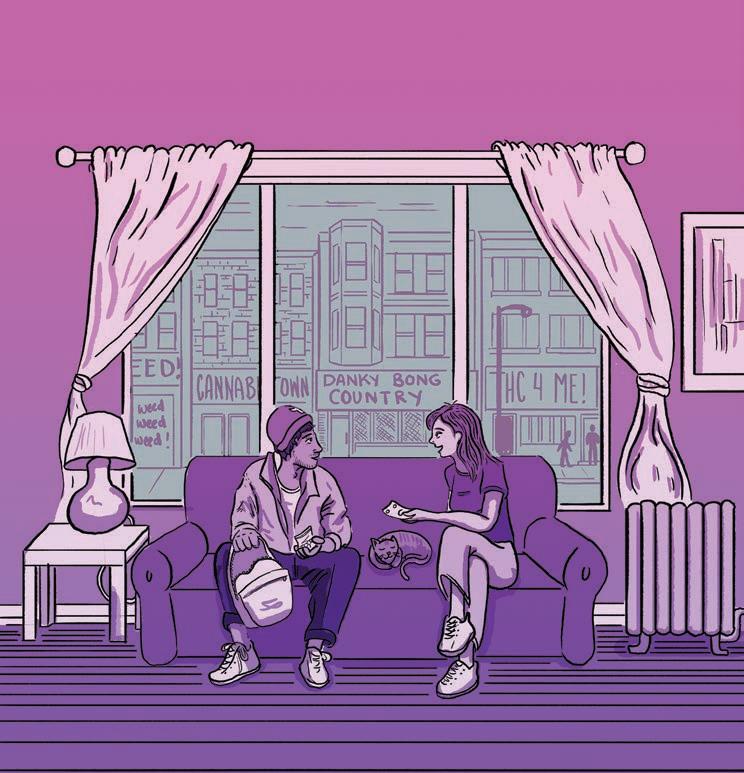
My favorite strains are generally the chill-out ones. There’s a saying: “Sativa to help me with the things that I can change and Indica to help me accept the things that I can’t.”
Isn’t it more likely that cops will catch you since you’re asking more people to come meet you outside?
Cops are cops but there’s tons of delivery drivers out there right now. Are you gonna stop all of them and check them? I’m sure it’s a good time right now for cops to not be doing anything, even less than before. I’m pretty sure they don’t want to encounter anybody. They’re still human.
Do you think COVID-19 will affect the weed business in unexpected ways?
I’ve always known that the weed business has an expiration date. The government could legalize everything and once you can travel over state lines people like me will be bumped off the market. Here in the States everyone suffers from some type of PTSD. There’ll be people saying they “went through the corona scare of 2020, let me get high!”
Once it’s federally legal everyone that’s got a big name and money will take over. Once the dispensaries can have their own delivery service then why would you call me? But maybe not. We’ll see. We’ll run it till it’s over. v
APRIL 2, 2020 - CHICAGO READER 17ll
@mdoukmas
FRANK OKAY
ARTS & CULTURE
concerns so far, and if those couples don’t rebook she anticipates losing at least $30,000.
“That amount of money would absolutely destroy my small business,” Abelman says.
“Rescheduling is the best option for me, and it’s what I’m seeing most couples do, but even that comes with its own set of problems.” The ripple e ect of couples rescheduling for 2021 means either fewer available days for new business or working back-to-back-to-back weddings to make up the di erence. She is currently selling prints online and brainstorming other virtual ideas to bridge the gap without putting her clients out more money, but it gets tricky when the entire industry is about physically gathering together.
Quilos and Hutches both say going virtual is not an option for their big day. They’ve joked about Zoom celebrations, or a digital “party” on the original wedding date, but ultimately they want to wait until everyone can responsibly be in the same place again. While we’re all fighting uncertainty, they agree that they don’t want to make it about themselves or be in a position where anyone feels sorry for them.
When ‘I do’ quickly becomes ‘you can’t’
How engaged couples and wedding industry professionals are coping with corona-related cancellations.
 By BRIANNA WELLEN
By BRIANNA WELLEN
Kane Quilos and Patryck Kowalick met on Tinder and are not ashamed to admit it.
They had a low-key proposal filled with lots of giggles at their favorite Mexican restaurant. When planning the wedding, the hardest part was trying to whittle down the guest list to fit their budget. Other than that, the leadup to their May 16 wedding date was fun and easy. But as gatherings of a certain size started to be discouraged and restrictions on travel threatened a large portion of guests flying in from the Philippines and from other cities across the U.S., they realized they needed to postpone the wedding. “We have been engaged for over a year, a year and a half by our original date,” Quilos says. “We just want to be married
already!”
For Katie Hutches and Andy Horigan, the COVID crisis was yet another stressor added to a building pile leading up to their now-canceled April 3 wedding. In addition to planning the wedding, in the months leading up to it Hutches was commuting two hours a day to work long hours as a teacher and finishing classes to get her master’s. Her mom was diagnosed with breast cancer and her cat needed surgery.
“I have been anticipating this culmination of everything stressful to just be over—the master’s classes, my mom’s treatments, the wedding planning—it was all supposed to be over very, very soon,” Hutches says. “The big-
gest disappointment for me was just grappling with, It’s not over yet. And, Oh my god, I have to do a lot of this over again.”
But that feeling quickly went away because of how supportive venues and vendors have been. There are, of course, some disappointments along the way. Quilos and Kowalick can no longer get married in the church they regularly attend because of how the rescheduling worked out, and Hutches and Horigan now have the challenge of keeping 400 succulents alive through July, when their rescheduled wedding will be. In normal circumstances, couples would have to pay additional fees for rescheduling with each vendor or venue and, depending on the contract, would be out any amount they’d already paid depending on rescheduling availability. But because of allowances for these unusual circumstances by venues, caterers, photographers, DJs, florists, and others involved, neither couple has lost a significant amount of money.
The same can’t be said for the vendors making those offers. Wedding photographer AJ Abelman runs her own one-woman business, and a majority of her income comes from weddings booked between April and October. (Full disclosure: she is a close friend.) This year, eight of her clients have weddings that have been postponed or canceled because of COVID
“Yes, we had to postpone a wedding and that sucks, but it’s so much more important to us that our friends, family, and community stay healthy and safe right now,” Horigan says. “We will celebrate with friends and family when the time is right, but for now, we want everyone to do their part to help stop the spread of the virus.”
In the meantime, both couples are learning how to really live together before they say, “I do”—Quilos jokes that this is the world’s way of testing how they’ll do in their marriages. While in isolation, she and Kowalick have been having date night every night, cooking and drinking together, and trying to share their individual interests. Quilos is all about getting her husband-to-be to join in on her yoga classes, and if things get too serious, they just have a living-room dance party.
Hutches and Horigan are glad to be isolated together rather than apart, spending their days doing new things like making pasta from scratch and playing lots of board games. Mostly, Hutches says, this time has been a preview of what awaits on the other side of the COVID crisis. “I think the isolation has really just confirmed for both of us that we’ve made the right choice of who to spend the rest of our life with.” v
@BriannaWellen
18 CHICAGO READER - APRIL 2, 2020 ll
COMMUNITY
Patryck Kowalick and Kane Quilos
AJ ABELMAN PHOTOGRAPHY
Taking wellness practices online
By S. NICOLE LANE
Ithink my biggest issue with working in an office is that it’s socially unacceptable to do a few jumping jacks, squats, or burpees during the workday. Trust me, I’ve tried. I’m not a fitness freak by any means but I do love to move. As a trained dancer, I’m just not well equipped to sit for eight hours a day. So, one positive for me during this self-isolation period is my ability to break out into movement whenever the hell I want—it’s something I desperately need during this time of chaos, panic, and overwhelming stress.
Craving movement, I’ve discovered, isn’t a solitary feeling as local yoga and wellness folks have been taking it to the ’gram, where they are offering classes, free lessons, and words of advice to support their own business and to impact others.
I talked to a few yogis, meditation facilitators, and wellness freaks on what they are offering for Chicago folks in times of need. Head to chicagoreader.com to read more.
NATHAN PAULUS
Nathan Paulus began teaching yoga in 2004, when he developed a fascination with the mind-body connection. In 2012, he began to practice tai chi and now teaches his own internal development under Timothy Suh and Patrick Kelly, who runs Nine Clouds.
The Logan Square resident is streaming two types of classes: meditation and tai chi.

“Of course, connecting with the physical body, doing some breath work, and techniques for calming the mind are a great benefit,” he says. “They are also things that have more of a cumulative e ect, so for those who have a good ten years of practice underneath them, stress is not as bad as someone who might be starting to think of these practices.” And right now, Paulus says, is the best time to begin to work on yourself.
Tai chi and yoga are a bit different from normal wellness or physical activity in that
they are motivated by a person’s internal evolution. So the physical part of the practice is less about fitness and more about deepening the connection with oneself through the body and trying to go deeper still with meditation.
For Paulus, life is still fairly stable during the pandemic. “I am using this time to get home projects done, do my own internal practice with a bit more intensity because there is time, cook, practice my musical instruments, talk with friends, and take relaxation,” he says. “Also, I’ve been playing video games like I am a teenager for some escapism.” He’s also a musician in the Magical Beasts, an experimental folk band which he says will be posting some music online very soon.
Where to find Nathan’s tai chi classes? For breathing and meditation classes, tune in to Five Point Holistic Health’s Facebook or Instagram accounts. For tai chi classes, email Nathan, nathan@fivepointholistic.com, for an email to the Google Meet link.
When? Every day at 8 AM. New students can join on Monday, Wednesday, and Friday. Nathan advises that it isn’t easy for people who don’t have experience. How much? Free, accepting donations.
MIA PARK
Mia Park began practicing yoga in 2002 with a background in gymnastics and martial arts. She has more than 2,000 hours of teacher training and leads yoga nidra training as well as restorative yoga nidra workshops. She’s also a professional actor and rock drummer. Most recently she was in the play Fast Company at Jackalope Theatre, which was supposed to run March 4–April 11 but closed on March 13 because of the crisis, and she’s had one band practice for a recording session.
The Tri-Taylor resident is sharing her 20-minute practice of yoga nidra, which means yoga sleep, and includes yoga-based relaxation and meditation techniques perfect for our everyday stress. It’s something we may all need to incorporate into our new work-from-home routine. “The intention of yoga nidra, as with all yoga practices, is self-awareness on the deepest levels,” Park says. The purpose of yoga nidra is to slow the brain’s activities and “activate the parasym-
pathetic nervous system (the rest and digest system), and allow your body, mind, and energy to heal itself.”
“Wellness is the only thing that will get us through these trying times,” Park says. “It’s time to commit to as many self-care mechanisms as we can, which should include daily movement of your body, whether it’s naked dancing to the Clash or walking outdoors for 20 minutes—clothes optional, but please stay six feet away from anyone you encounter.”
Lie on your back, listen to Park guide you, and practice mindfulness. “Love is the strongest medicine we have, and it kicks COVID-19 in the ass,” Park says.
Where to find Mia Park’s yoga nidra classes? She will livestream on her Facebook and Instagram accounts. Her 20-minute nidra sessions live permanently on her Facebook. When? Tune in from 2–2:20 PM. How much? Free! Donations are accepted via PayPal, Venmo, and CashApp at @miaparkmiapark, and Zelle at mia@miapark.com.
NATALIA MONTALVO
Since she was five years old, Natalia Montalvo has been dancing. It wasn’t until she took fitness classes in college that she discovered Zumba. In 2014, she became Zumba certified and has been teaching ever since.
Montalvo advises people that staying active and keeping our bodies moving is essential during these times. “It is so easy to just lay around and be on our phones the whole day, but with just one hour of movement, whether that be dancing, working out, yoga, etcetera, can boost our immune system, metabolism, and help us forget about all of the horrible things that are happening in our world,” she says.
Originally from Mexico and now living in Pilsen, Montalvo says she’s currently unemployed. “But instead of getting down about it,” she says, “I am using this time to rest, create, plan, and be grateful for the things I do have.” By conducting online classes, she’s earned some income through donations and students’ generosity.
Where can you find Natalia’s Zumba classes? Via Instagram Live at @natmontalvo_, and Zoom.
When? At least four times a week. How much? Free, donations accepted. v
APRIL 2, 2020 - CHICAGO READER 19ll
ARTS & CULTURE
HEALTH
Where to stream your local instructor’s classes.
Mia
Park LIZ LIU
@snicolelane

THEATER
DANCE Lou Conte Dance
Studio shuts down
Hubbard Street’s management blames COVID-19, but Conte and others raise questions.
By IRENE HSIAO
Astudio, in its essence, is nothing more than an empty room. It acquires its magic by the people who gather there. Dancers are faithful. They go to the studio not only to hone their craft but to participate in the daily evolution of a living art. There, they sweat into the discovery of their bodies, then write their movements into its history. Whether they ever share a stage, dancers work together in the studio, a space of learning, experimentation, witness, and community. And for 46 years, Lou Conte Dance Studio, located at 1147 W. Jackson, two blocks from the Racine Blue Line station since 1998, was that meeting house for many— at first the students who became the first dancers of Hubbard Street Dance Chicago, then the world of dancers who flocked to learn from a dance company that put Chicago on the map.
Sending shockwaves through a community already devastated by closures and cancellations, HSDC announced on March 27 that the Lou Conte Dance Studio, which had closed on March 13 for COVID-19, would remain closed indefinitely. “The closure is a direct result of the COVID-19 public health crisis,” wrote HSDC executive director David McDermott in an e-mail addressed to friends and patrons of the studio. Instructors and sta had been informed of the decision just hours before.
HSDC founder Lou Conte, who directed the company until 2000, began teaching twice a


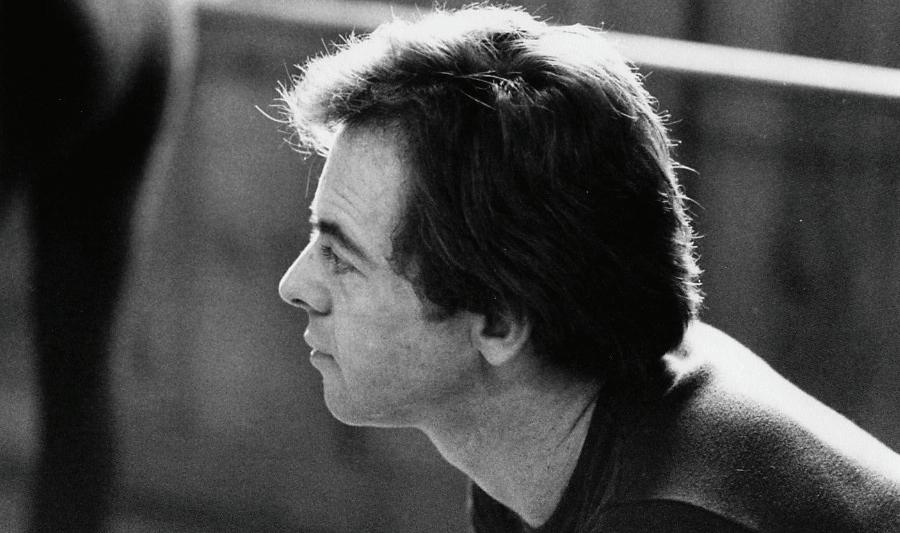
week in the basement of the Candlelight Dinner Playhouse, initially to train dancers, singers, and actors in the style he was developing in the shows he choreographed there. “I rented a studio space by the hour a couple days a week. So many people came that I started a school,” recalls Conte. “During that time, there were always talented people—[founding Hubbard Street dancer] Claire Bataille was one of the big ones. I said, ‘I want you to be here all day and take class, not wait tables too much and be tired when you come in.’ I had trained on scholarship with Christine Du Boulay and Richard Ellis [at the Ellis-Du Boulay School of Ballet], so scholarships were always important to me.”
The school quickly outgrew its first home, and in September 1974 Conte and his students moved into studios on Hubbard Street, where, in 1977, the company began. “If it hadn’t been for the school, there would have been no company, I guarantee you that,” says Conte. “Because I had a thriving school, I was able to cancel classes on Friday afternoons at 4 and Wednesday afternoons a couple hours, and all day Sunday so the company could rehearse. I choreographed and directed for no salary. I was only able to do that because the school was successful. And early dancers, Claire among them, would teach, and that brought in extra income for them. The school gave a good foundation for the company to grow.”
22 CHICAGO READER - APRIL 2, 2020 ll
Furthermore, the Lou Conte Dance Studio was far more than a source of talent and income—it was a source of community for the company. “Lou was such a charming and dynamic presence,” remembers Ginger Farley, who joined the studio at the age of 18, danced with HSDC, and taught at LCDS for 20 years. “He asked the most of you as a teacher, and he didn’t tell you you were great if you weren’t. He was completely honest and inspiring and a perfectionist. When I first started taking class there, it was mostly him teaching. I recall seeing much of the first Hubbard Street repertoire being taught as combinations in class. They’re deeply linked, those two entities, beyond belief.”
Classes also built a uniquely dedicated audience for the company. “With Lou, the company class was an open class,” says Birute Barodicaite, who notes she began teaching at the school in 1978. “People could come into it no matter what. It was wonderful because there was a good connection made. People knew the dancers personally.”
That sense of community carried the studio for decades, even as the company grew and diverged from the school. As studio director, Bataille was central to this legacy. “LCDS scholarship dancers describe it as their ‘second home,’” says Ethan Kirschbaum, LCDS faculty and director of the scholarship program after Bataille succumbed to cancer in 2018. “That was Claire’s doing, as she herself gave me a place to belong when I had nowhere else to be. The classes and choreography I experienced inside those walls made me the dancer and educator I am.”
Yet in recent years, signs of financial struggle were literally written on the walls of the building: the roof leaked, the plumbing was fragile, and, perhaps most telling, the sprung floor of the studio where the world-class company rehearsed warped to create a mound several feet wide that, rather than repair, management simply marked with red tape. The community that had been built over decades began to disperse as open classes were shifted into smaller studios to make room for a new professional program with a hefty price tag.
Sale of the building and the decision to move to another, as yet undetermined, venue has also created uncertainty. “I’ve been watching this happen for years, the whittling away of my vision and Claire’s vision for the company and the studio,” says Conte. “The company leaders told me they would be making changes some time ago for financial reasons. The executive director
said that the company was no longer invested in providing classes to the public and that the programs that did not bring in money, including Lou Conte Dance Studio, would be eliminated.”








An outpouring of sadness has overwhelmed the dance community near and far, with many dancers mourning the loss of a spiritual home. “Musicality, exactitude, high standards for yourself and pleasure, and a sense of the group improving together, watching and learning from each other—there’s nothing like class,” says Farley. “You admire someone’s work and aspire to it with your own body in the same space in the same time. It was powerful.” Says Barodicaite, “It was like two lungs—now one will be missing.”
Yet some at the studio have expressed not only sadness but a sense of betrayal by a management that prioritized cash over community.




“The board neglected the human element,” says Winifred Haun, who trained with Conte and taught at the studio for 14 years. “They treated the faculty the same way they treated the studio, which is, if it’s not making us money, we don’t know what to do with it. Why not think about doing something different? Artists are used to looking at things di erently and coming up with something better. The board did not have the courage to stand up and say ‘We’re closing this important and beloved dance studio because we don’t want to do it any more.’” Wrote Dionna PridGeon, former LCDS student and faculty member, on social media, “The lack of transparency and being left out of the conversation is not ok . . . Our voices should have been heard.”

“Right now the building is closed because of the coronavirus,” says Conte. “But that wasn’t the reason to close the studio doors for good. Seeing my whole artistic life, for 46 years with the studio and the company, in this shape makes me very sad.”





As of press time, McDermott could not be reached for further comment.




































Still, hope remains. Kirschbaum relates a memory from 2017: “I was teaching a Horton class. The fire alarm started to go off (which ended up being the fire that decimated Studio C) so I evacuated my class. I was touched that the second we got outside, my class continued to dance. They continued to go over the exercises in the midst of a fire! It’s a reflection of the power of the human spirit, and more specifically the unstoppable nature of a passionate dancer.” He adds, “We manufactured a sense of family out of negative space. That still inspires me.” v



Lou Conte COURTESY LOU CONTE DANCE STUDIO
@IreneCHsiao THEATER supportsmallbusinessesin twodiversecommunitieson Chicago'snorthwestside u rt ll i sses in o i r iti hi ' rt t i it.l il i #GlobalRootsLocalHeart COmedy from Your cOUCh Connect, Laugh, Create with People Around the World Through Virtual Classes! IMPROV • STAND-UP • WRITING • & MORE! SECONDCITYONLINE.COM • 312-337-3992
HOME
Make no little home-viewing plans
Now is the time to tackle some daunting cinema.
 By BEN SACHS
By BEN SACHS
Now that I have time to watch movies at home (and, it would seem, as many of them as I’d like), I fi nd myself overwhelmed by the number of choices I have. Firstly there are all the DVDs my wife Kathleen and I have collected over the years, many of which we still haven’t watched. Then there are the films available through our subscriptions to Netflix and the Criterion Channel. And on top of that, there are those movies popping up online in brief windows or at scheduled times. On Sunday night I watched IWOW: I Walk on Water , a new 200-minute experimental documentary-cum-autobiography by Khalik Allah ( Black Mother ), during the short interval after Allah put the movie on YouTube and before it was taken down. This week Kat plans to virtually attend shorts
programs at the Ann Arbor Film Festival, which is currently taking place online.



Most of our viewing since becoming homebound has been united by a common ambition. Since we’re stuck in place for another several weeks (Kat and I are both working from home for the foreseeable future), we fi gure this is a good time to undertake epic projects—entire TV series, filmmakers’ bodies of work, movies with exceptionally long running times. Indeed, IWOW was one of the less daunting things I’ve watched in the past week, though I don’t write that to diminish Allah’s remarkable accomplishment. The latest feature by the New York street-photographer-turned-filmmaker is one of the breeziest three and a half hours I’ve encountered, organized according to an

24 CHICAGO READER - APRIL 2, 2020 ll FILM
STAY
associative, poetic logic that I found easy to get swept up in. IWOW considers Allah’s life over most of 2019, during which time he photographs homeless people and drug addicts in Harlem, rekindles a friendship with one of his subjects, works to sustain a long-distance relationship with his wife (who’s living in Brussels), and ingests a lot of psilocybin mushrooms. The film feels like a giant sketchbook, moving freely between Allah’s personal and global concerns while advancing a constant aesthetic. (Allah’s use of 16-millimeter film is frequently gorgeous, and his editing achieves a dreamlike fl ow.) Throughout, the filmmaker raises compelling questions about artists’ responsibility to society, life under globalization, and his own sanity. The results surely aren’t for everyone, but I, for one, look forward to revisiting IWOW when it becomes available through other channels.
The most daunting thing I’ve tackled in the past week has been Argentine filmmaker Mariano Llinás’s La Flor (2018), which is available to rent, in three parts, at distributor Grasshopper Film’s website. With intermissions included, La Flor runs almost 15 hours, which makes it one of the longest films ever made. Yet it’s easy to break up into manageable segments; the film consists of six episodes, some of which unfold in multiple chapters. Watching it feels like reading an avant-garde epic like Ulysses or Gravity’s Rainbow , in part because Llinás employs so many literary devices. Much of La Flor is narrated, and the writer-director (after the fashion of many modern and postmodern novels) frequently draws attention to his position as a storyteller. The film’s very structure suggests a literary experiment. The six episodes, each of which ri on a di erent genre, proceed according to certain arbitrary rules; the first four feature beginnings but no endings, the fifth contains a beginning and an end, and the last just the final passages of a story. Five of the episodes star the same four actresses, and their presences ground the ever-shifting narratives in a sense of familiarity.
On a basic level, La Flor is an exercise in the pleasures of storytelling; the longest episodes are rife with flashbacks, subplots, and digressions. But Llinás’s joy at spinning out shaggy dog tales reflects larger questions about how we—and larger structural forces in the world—organize our lives. The single longest portion of La Flor, which runs almost six hours, is a knotty cold war espionage epic
FILM

that takes place across multiple continents; like Gravity’s Rainbow , it compiles a trove of overlapping narratives to consider the complex geopolitical forces that shaped the fate of the postwar world. The spy epic at the heart of La Flor throws the film’s other stories into a di erent light, leading one to ponder the ways that modern life resembles a modern novel. As you might imagine, this isn’t the only theme Llinás develops across his gargantuan achievement. La Flor also employs female-driven narratives to consider the subject of female autonomy; the film derives a certain tension between Llinás’s overt control over the stories and the four leads’ increasing influence over their characters.

In its genre play, metafictional techniques, and adoring focus on female performers, La Flor suggests an expansion on Jacques Rivette’s 1974 classic Celine and Julie Go Boating , yet there’s something distinctly South American about Llinás’s literary sensibility. The writer-director chases premises regardless of where they lead him, and this reminded me of the fi ction of such giants as Julio Cortázar, Felisberto Hernández, and Gabriel García Márquez. The second episode, for instance, begins as a 50s-style women’s picture about a melancholy singer before evolving into a bizarre conspiracy narrative involving scorpion venom; the fourth episode starts as a self-refl exive, making-of mockumentary before venturing into the delusions of a madman at a sanatorium. The latter development playfully equates storytelling (particularly the sort of epic storytelling one fi nds in La Flor ) with madness, reminding us that both suck us into vast, internal experiences.
Such experiences seem especially welcome now that we all have so much time to spend with ourselves, though of course epic narratives don’t have to be inward-looking. While taking breaks from La Flor, I finally watched, with Kat, Patricio Guzmán’s three-part documentary The Battle of Chile (1975–79), about Salvador Allende’s presidency and the coup that overthrew it. How nice it was to get away from so much fiction with these shots of real history! Guzmán is a major figure that I’d neglected for too long. In the coming weeks, I plan to catch up with some of his other documentaries, which comprise a grand portrait of Chile over the last 50 years. Between Guzmán and Fritz Lang (with whom I’m also having a phase, watching or rewatching most of his films), I hope to maintain a healthy balance between fiction and nonfiction. v
APRIL 2, 2020 - CHICAGO READER 25
La Flor WE ARE ONE. ONE COMMUNITY, ONE CITY. For now, we embrace shelter-in-place. But we’ll dance together again soon. In our studios and far beyond. When the time is right. AND THE CITY HAS WON. Be well, The Joffrey Ballet Community
Joffrey Artist Jeraldine Mendoza and ensemble. Photo by Cheryl Mann.
Meet the YouTube singing star of the Hakha Chin diaspora
Burmese refugee Elena HT Par, a high school student in Chicago, won the Chin Cable Network’s 2019 award for song of the year.

 By JACK HELBIG
By JACK HELBIG
he YouTube video opens with a young woman seated at a vanity table, writing in her diary and waving good-bye to end a FaceTime chat. The soundtrack begins with a brief acoustic-guitar intro, and then a soft, sweet voice floats into the arrangement, slightly sad but still comforting. A good voice to listen to in hard times, or when sheltering in place.
The song is called “Melody,” and the singer is Elena HT Par, a 17-year-old student at Holy Trinity High School in Noble Square, where I teach. Though Par isn’t one of my students, I have directed her in school drama productions. I first learned about her because she, like a lot of teens, regularly uploads short clips of herself singing to YouTube. But Par is a standout among young amateur YouTubers. “Melody” has attracted more than 1,685,000 views since she uploaded it on January 1, 2019. It’s also elicited more than 2,500 comments from fans around the world: “Love from Korea.” “Love from Australia.” “Love from

26 CHICAGO READER - APRIL 2, 2020 ll
Elena HT Par’s song “Melody” has nearly two million YouTube views. BETH SUNG TIN PAR
T
Mizoram [a state in India].”
Even if it hadn’t attracted almost two million hits, the video would stand out. It’s not a shaky selfie, with audio captured in real time by a phone mike. Par is clearly lip- syncing along to a song she’s already recorded, and though she does a superb job, the edits give her away. In one shot she sings at a professional-looking microphone, round pop screen in place; in the next shot she’s back at her vanity, lingering over her diary.
Par met the videographer for “Melody,” Rin O. Zual, at her church, and they shot at his home on what could be generously described as a shoestring budget. “We didn’t spend any money,” Zual says. “Everything was done by friends supporting each other.”
“Melody” was written by a fellow YouTube performer, Indianapolis-based Honey KhuaitiZuu, who has her own YouTube channel. The song is sweeter and less gritty than KhuaitiZuu’s usual rap tracks.
“Her name is really cool, because Honey means ‘honey,’ right? And KhuaitiZuu means ‘honey’ in our language,” says Par. English is her second language; her first is Hakha Chin. “So it’s like Honey Honey.”
The way Par sings the song, it flows like honey. The first word is in English—“FaceTime”—which Par draws out, letting it hang for a moment before switching to her native language. The words appear in the air around her, and though they’re spelled out in the Latin alphabet, if you only know English that’ll be no help. Hakha Chin, also called Lai, is spoken by fewer than half a million people worldwide. It’s the shared language of the Chin, an ethnic group in Myanmar (or Burma, as Par prefers to call her home country).
Par came to the U.S. when she was six. “It was so much safer here in the U.S.,” she
explains. “And more opportunities and an education.”
The Chin people were one of the founding groups of what became the Union of Burma at the end of British rule in 1948. The Chin had converted to Christianity during the colonial period, and that put them at odds with the country’s powerful Buddhist elite. They’ve been persecuted in Burma since the military takeover in 1962, and the situation hasn’t improved much since the country became a democracy in 2011.
This persecution has taken the form of the destruction of churches, the arrest or murder of clergy, and attempts by the Burmese military to forcibly convert Chin people. The Chin State, a mountainous, sparsely populated area, has suffered acute shortages of food and medical facilities. The Chin haven’t been targeted by the kind of genocidal attacks inflicted on the Muslim Rohingya, but there’s nonetheless a large and ongoing diaspora of Chin people from Burma to safer havens around the world. Many Chin live in India and Bangladesh, and there are Chin communities in North America, Europe, Australia, and New Zealand. “Most Chin people [in the U.S.] are in Texas and in Indianapolis,” Par explains. “But we are in Chicago.”
“Melody” is by far the most popular song Par has released, and it’s one of a handful of songs (“Lonely,” “White December”) that she’s uploaded for streaming on Spotify and Pandora and for sale digitally via iTunes and Amazon Music. Despite its success, though, Par has no immediate plans to try for a career in music. She’s performed at a few concerts, but she doesn’t tour—she’s still a full-time student, after all. She downplays her status as a YouTube celebrity at school. At a school event last year, a mischievous friend teased
her by playing “Melody” on her phone; Par grimaced, blushed, and made her turn it o . Par is an honor student, and likes to keep her school life separate from her online life. “At the moment, singing is a hobby, but I do hope to put my music out there,” she says. “I am interested in education [in music], but nothing is for sure. I’m still learning and discovering new things about me.”
When did Par start singing? For that question she has an immediate answer: “That is basically asking me when I first came to the U.S.,” she says. “I started singing when I came to the U.S. in 2010. I was like six.”
Par’s older sister, Suisui Zaathang, has another story. She’s four years older, and she says she can’t remember a time when Par wasn’t singing, even when they were growing up in Burma. (The sisters have different surnames because, according to Par, “All of our families have di erent names—it’s not a tradition to go by last names.”)
Zaathang says they lived in “a city called Than Tlang in Chin State,” close to the Indian border in the west of the country, and the family didn’t have a TV in their house. “We would go to a friend or neighbor’s house to watch TV,” she recalls. “Most of the time they would put on a music video with many talented singers from all over Burma. Every time my sister and I would come home, she would imitate the singer. She would climb on top of a chair or a desk and sing.”
When Par was done, she would demand that the family give her flowers to show their approval. “That’s a very popular gesture during her live shows,” Zaathang says, “because that was a very popular gesture seen in many music videos.”
Par has few memories of Burma. “I left Burma when I was three or four,” she says.
APRIL 2, 2020 - CHICAGO READER 27
MUSIC
The Chin people were one of the founding groups of what became the Union of Burma at the end of British rule in 1948. The Chin had converted to Christianity during the colonial period, and that put them at odds with the country’s powerful Buddhist elite.
ELASTIC ARTS Donate to Elastic or become a member today Friend: Any donation (plus a free button!) Backer: $35-$99, or $6.25/month, button, invitations to member events. Subscriber: $100-$249, or $12.50/month, button, invitations to special events, 20% discount on most events, and Elastic T-Shirt. Supporter: $250-$499, or $25/month, button, shirt, two for one admission, and limited edition newsletter. Advocate: $500-$999, or $50/month, button, shirt, limited edition newsletter, plus free admission to most events. Philanthropist: $1,000+ or $100/month, all member benefits plus free admission to most events for you and a guest. Fostering local independent music Ⅱ art Ⅱ performance since 2002 Donate
MUSIC
continued from 27
“Then we went to Malaysia for three or four years, then we came to the U.S.” Her family moved separately to Malaysia—father, mother, two sons, and two daughters—but from there they moved together straight to Chicago.
Par had trouble at first adjusting to her new life here. “Kindergarten was such a struggle for me,” she says, “because I didn’t know English. I would have anxiety attacks. I had an outgoing personality, but I could not communicate with my friends.” Par credits PBS Kids with helping her pick up English—that, and being forced to speak her new language every day. “What’s so hard was, I was afraid I would forget my Chin language.”
Par’s church, the Chicago Chin Baptist Church on Foster west of Harlem, also acts as a de facto community center, and it gave her a place to practice her language and keep in touch with her roots. The church has a video on its website that prominently features Par, dressed in red, at the head of a small choir. Par credits singing in church with helping her develop her talent.
“My Sunday school teacher and the people at my church realized my talent before I did,” Par says. “They were like, ‘Wow, you have so much potential.’ On Sundays there would be solos. And they would encourage me to sing solos, to use my voice.”


In a video Par posted in April 2019, titled “Q&A with Elena HT Par,” she admits she’s had no formal musical training. Or rather, all the training she has received came through singing in choirs. (She was also a member of the Chicago Children’s Choir for “about four months.”)



“I hope this doesn’t come o wrong, but I never learned how to sing,” Par says. “When I
was younger, I had this thing—if you want to sing, to be able to sing, you just have to keep on singing.”
Zaathang seconds that emotion: “[My sister is] very passionate about learning new songs, and I watch her sing pretty much every day.” Singing also runs in the family. Par says that her father, who died of a heart attack four years ago, loved to sing and write songs. Zaathang explains that he was an evangelist and then became a pastor. “He would go from village to village [in Burma] singing, preaching, and that’s how he met my mother,” she says. “They both sang together for a long time at jubilee, churches, conferences, and many more events. My dad loved to write and sing early in his teens—and he even taught me how to play the guitar. Singing is one of the many ways we bond in my family.”
Par credits one other factor in her singing career: the Disney Channel. “There’s this movie called Camp Rock,” she says, laughing and a little embarrassed. “When I was like 13, I watched the movie, and I was so inspired. Because of the music and the actors—you know, the Jonas Brothers, Demi Lovato. Demi Lovato was really my inspiration, how I wanted to be.”
Released in 2008, Camp Rock revolves around Lovato’s character, a girl from a poor family with a powerful singing voice who can only attend a prestigious camp for aspiring pop stars by working in the kitchen. The dramatic question that powers the film is whether her talent will be recognized and celebrated.
Lovato sings a powerful anthem at the climax of the movie, “This Is Me,” bravely revealing her true self and bringing down the house. (It’s not to be confused with another powerful anthem called “This Is Me,” delivered at the climax of the 2017 movie The Greatest Showman.)
28 CHICAGO READER - APRIL 2, 2020 ll
See you on the other side, Chicago. chicagodancesupply.com Rattleback RECORDS ANDERSONVILLE'S FULL SERVICE RECORD STORE WE WANT TO WISH YOU ALL HEALTH & PEACE DURING THESE CHALLENGING TIMES WHILE OUR SHOP IS TEMPORARILY CLOSED WE’RE HAPPY TO SHIP YOU ANY MUSIC YOU’RE LOOKING FOR! www.rattlebackrecords.com Never miss a show again. EARLY WARNINGS Find a concert, buy a ticket, and sign up to get advance notice of Chicago’s essential music shows at chicagoreader.com/early
Par took the song to heart and started singing it all the time. “My sister recorded a video of me singing the song,” Par says, laughing. “I used a vacuum cleaner as a microphone. At that moment I knew I loved music, I loved singing, and this is what I do—this is what I am here for.”
Par and her sister started recording Par singing covers of songs she liked. “I told [Elena] it would be amazing if she had a page of some sort, so that she can just upload them and share it with the world,” Zaathang explains. Soon after, she encouraged her sister to create a Facebook page to post these videos—a page she still uses, despite the popularity of her YouTube presence. One of Par’s early videos was a cover of Elvis Presley’s “Can’t Help Falling in Love.”
“On Facebook,” Par says, “there are a lot of people from my community. So my sister and I decided to record a video. And it got a lot of reactions. Many people were like, ‘You need to start a YouTube channel.’ My sister said, ‘Go for it!’ And so we created a YouTube channel.”
That was in August 2017, when Par was about to begin eighth grade. Since then she’s attracted more than 30,000 subscribers, and

























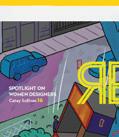

at publication time the channel had more than 2.3 million total views. The videos she posts are a mix of cover versions of pop hits, original songs in Hakha Chin, and concert footage from events—religious and secular—where Par has sung. This past winter she and her sister posted an original Christmas song, “White December,” that they’d written in Hakha Chin.
In November 2017, Par started collaborating with videographer Rin O. Zual, who would later work with her on “Melody.” In February 2018, Par posted a video shot by Zual where she sings a cover of “Rewrite the Stars” from The Greatest Showman . Par performs with another young amateur, Dave Lian, who also plays acoustic guitar, and the video identifies them in its title as “Dave and Elena.”
“It took us about two hours,” Zual says. “We didn’t have a budget for this. It was just the camera gear that I have, and the location was at my house.” Zual and Par continue collaborating today.

Since posting that track, Par has become something of a celebrity in the Chin community. She and KhuaitiZuu won the Chin Cable Network’s 2019 song of the year award for “Melody.” “I got a little trophy for it,” Par says,


smiling. “Which was cool.”

But even more surprising is how popular this sweet little song—about someone wishing she could see her beloved in real life, and not just on social media—has become worldwide. “When I saw my music doing well in the Philippines, I was really shocked,” Par says. “There were YouTube comments like ‘Love you from the Philippines.’ There was one I remember from Africa. The biggest population of people who listen to my music is from India, a place called Mizoram—that’s a state in India. They were like, ‘Oh, this song is very similar to our language.’”
Par says she’s proudest of how “Melody” advances the Chin language in her new country. “It’s not an everyday thing that there’s someone in the community who is able to do something like this,” she says. “With the Chin community, there are lots of kids who have grown up in America and have forgotten the Chin language. A lot of young kids hear [‘Melody,’] and it has inspired kids to learn their language and to find out about their roots. I think that’s cool.” v
@JackHelbig



Providing arts coverage in Chicago since 1971.





www.chicagoreader.com













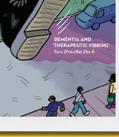


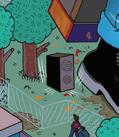
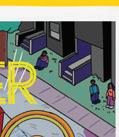

APRIL 2, 2020 - CHICAGO READER 29
MUSIC
WHEN THE COVID-19 CRISIS SUBSIDES long enough for the concert circuit to start up again, you’ll want to see Chicago electro-R&B duo Drama live. But in the meantime, their new debut LP, Dance Without Me, might just be the record you need to get through your social isolation.
An album for sad-but-sexy people everywhere, Dance Without Me continues the lush musical explorations of love and loss that the group began on the sultry, synth-driven 2016 EP Gallows, building urgency with the narratives in their lyrics as well as the tempos of their tracks.

Gentle opener “7:04 AM” captures that eerily silent longing that comes on strong in the mornings when someone who’s always been there is suddenly gone. The house-influenced instrumentals of producer Na’el Shehade pulsate without overwhelming, while Via Rosa’s soulful, smoky vocals linger over every note, making heartbreak and bliss sound equally seductive. Drama balance pop-conscious melodies and deft, delicate layers of keys and strings against funky, grimy beat manipulation and bossa nova rhythms, bringing a vibrancy that’s distinctly theirs to “singing the blues.” Rosa’s candid declarations can stand alone, but listened to in succession, they build upon one another to tell a larger, more complex story.
On “Lifetime” and the title track, she speaks to di erent elements of longing, and the latter ultimately drives home the message that self-love must come before love of another. The process of healing a broken heart is a journey from pain to joy, and on Dance Without Me Drama make a compelling case to hold space for it on the dance floor. —JESSI ROTI
Spend quality time in quarantine with your new favorite Chicagoalbums
For many Chicagoans, going to shows at small clubs and DIY venues is a way of life. So during our shelter-in-place order, we’re not only missing close friends and loved ones, we’re also missing the sights, sounds, and camaraderie of our local music community.

But pandemic or no pandemic, the concert previews in our April 2 issue (assigned weeks ago, before all the shows were canceled) were going to be something special. The Reader typically covers a mix of local and touring artists, and when we’d publish our usual 11 show previews each week, a handful might be about Chicagoans. This time around, though, we’d lined up seven record-release shows by some of the city’s most exciting underground artists, including postpunk bands, rappers, an R&B group, an avant-garde cellist, and more.
We can’t celebrate with these artists in a live setting, but we can sure as hell celebrate their musicianship and accomplishments. We’re still running the show previews that we could repurpose as record reviews—and that means nine this week. When you stream the new albums below, try closing your eyes and picturing yourself at one of Chicago’s beloved neighborhood venues with your best concert buddies. You just might come out of quarantine with a new favorite local band.
—JAMIE LUDWIG
Deeper, Auto-Pain

Fire Talk
deeperchi.bandcamp.com/album/auto-pain
While Chicago postpunk four-piece Deeper was working on the follow-up to their 2018 self-titled debut, guitarist Michael Clawson quit the band. The remaining members—guitarist-vocalist Nic Gohl, bassist Drew McBride, and drummer Shiraz Bhatti—wrapped up the album as a trio. This past fall, after they’d finished, Clawson took his own life. Many of the songs on the new Auto-Pain (Fire Talk) became memorials, informed by the bandmates’ experience with a close friend who privately wrestled with depression. The members of Deeper recently spoke to Stereogum at length, sharing their memories of Clawson and explaining how their questions about mental health manifest themselves in the band’s alternately anxious and heartening music. On Auto-Pain , Deeper braid ice-cold guitar riffs with taut rhythms that sometimes leap from dry and barren to inflamed and euphoric within a single track—such as the furiously precise “4U.”
On “Willing” and “Lake Song,” Gohl explores what it’s like to confront the uncertainties of your own mental health, his delivery wavering between hurried quasi-yelps and somber quavers in a way that augments the music’s emotional ambiguity. Though Auto-Pain doesn’t offer any easy answers, it pulses
30 CHICAGO READER - APRIL 2, 2020 ll
DRAMA, DANCE WITHOUT ME Drama Music thedramaduo.bandcamp.com/album/dance-without-me PICK OF THE WEEK Drama’s new Dance Without Me is for sad-but-sexy folks everywhere Recommended and notable releases and critics’ insights for the week of April 2 MUSIC
ZOE RAIN
in partnership with to add your event to TIXREADER.COM, email mroeder@chicagoreader.com APR. 2 Dave Stone @ North BarTHU APR. 19 Cheers with Beers Cupcake Class @ District Brew YardsSUN APR. 16 Late Night 5 @ The Lincoln LodgeTHU APR. 17 Late Night 5 @ The Lincoln LodgeFRI APR. 20 Monday Night Munchies: A 420 Comedy Show @ North Bar MON APR. 29 Rich Vos @ North BarWED MAY 9 Head Talks with Shane Mauss & Sophia Rokhlin @ Laugh Factory SAT MAY 9 Marcella Arguello - Early Show @ North BarSAT MAY 9 Marcella Arguello - Late Show @ North BarSAT JUNE 6 Naperville Soulfest 2020 @ Naperville SettlementSAT JUNE 25 Mike & the Moonpies / Tim Gleason @ The Law Office Pub & Music HallTHU JULY 5 Esther Rose @ The Law Office Pub & Music HallSUN
the energy we need to face these issues
make
FACS, Void Moments
Trouble in Mind
troubleinmindrecords.bandcamp.com/album/ void-moments
The Facs formula has always been stark minimalism. On their first two albums, the Chicago trio—currently drummer Noah Leger, guitaristsinger Brian Case, and bassist Alianna Kalaba— built every track on tense rhythms, simple bass throbs, barely-there guitar plinking, and direct spoken-word vocals. It was like they were casting moods more than writing songs. The formula worked to great effect, both live and on record: their music was spooky, hard-hitting, and efficient, with no note or tone ever falling out of place. Still, in the back of my mind, I found myself wanting more—perhaps due to my obsession with Case and Leger’s previous band, the four-piece Disappears, who created mesmerizing layers of textures and evil energies. But on the brand-new Facs full-length, Void Moments (Trouble in Mind), anything I felt like the band might’ve been missing suddenly appears. The album is an absolute masterwork of experimental postpunk. Facs work up an incredible ruckus, piling on alien sounds, razorsharp bass parts, and almost catchy vocals. A highlight for me is Leger’s performance: I’ve already used a lot of Reader ink to praise his work over the years, but on Void Moments he’s an unstoppable force. His drums act as the band’s lead instrument, and he plays with offthe-leash energy, hammering out bizzare beats and dazzling fills with staggering precision and power. Void Moments isn’t just Facs hitting their stride—it’s an impressive peak from an excellent band. —LUCA CIMARUSTI

MUSIC
Sterling Hayes, Flirting With Death Create Music Group

soundcloud.com/sterlinghayes-1
Four years ago, Save Money rapper Sterling Hayes dropped his debut mixtape, Antidepressant, which foreshadowed the wave of Soundcloud rappers who’ve peppered their rhymes with intimate disclosures of their struggles with mental health issues. But that’s not to say that Hayes has much in common with those MCs, or with any scene around town either. On his forthcoming album, Flirting With Death (Create Music Group), he unloads diaristic raps that sometimes thrash against the beat or refuse to conform to a discernible rhyme scheme— he bends every line to the vagaries of his emotions, which makes for some engrossing passages. Hayes punches up his tracks even further by enlisting some of his Chicago friends, including R&B singer the Mind, fellow Save Money MC Brian Fresco, and ace-in-the-hole rappers Vic Spencer and Tree. But when Hayes gives himself room to roam—he’s alone atop the unstable synth and minimal percussion of “Offspring,” with no guest vocalists—he proves he’s got the grit to flourish all by himself, on his own idiosyncratic path.
—LEOR GALIL
Chicago four-piece Melkbelly are best known for playing what you might call noise pop. Though they employ guitarists with a knack for wiry, minorkey interplay, a drummer who pays homage to Brian Chippendale, and a singer who can flip the switch in an instant from sweet Kim Deal croons to blood-curdling screams, they also inject their songs with as much undeniable melody as harsh dissonance. On the brand-new Pith (Wax Nine), Melkbelly continue their growth in both directions. Their pop side shines brighter than ever thanks to the
APRIL 2, 2020 - CHICAGO READER 31 with
and
a better tomorrow. —LEOR GALIL
Facs ZORAN ORLIC
Melkbelly, Pith Wax Nine melkbelly.bandcamp.com/album/pith
Stay Home. Stay Positive. Stay Connected. oldtownschool.org We can’t wait to get back to making music and dancing together at the Old Town School! In the meantime, many of our classes are currently running online, and we are actively working on more ways to keep you making music and learning new things with us, from home, in the near future. We are so thankful to be part of the wonderful and supportive arts community in Chicago and are especially thankful for all our dedicated students and teaching artists persevering with us during this time. For updates, rescheduled concert info, ways to help support our staff & more please visit oldtownschool.org/alert Stay safe, sane, and keep on playing from all of us at Old Town School of Folk Music!
MUSIC
continued from 31 majestic vocal hooks of guitarist-singer Miranda Winters, so that a casual, surface-level play-through of Pith could persuade you that it’s simply a great indie-pop record. On further listens, though, you can hear the band’s ongoing weirdness—that aspect of their sound has become more sophisticated and subtle, but it’s also more complex and intricate. “Sickeningly Teeth” creates a dizzying juxtaposition by colliding a sad, beautifully sung verse with a rhythm that constantly changes speeds. “LCR’’ climaxes with a catchy chorus anchored by explosive Lightning Bolt drums. And album centerpiece “Kissing Under Some Bats” starts as an upbeat, danceable number, then gives way to nearly ten minutes of dark, spacey, psychedelic drones. It’s always been exciting to try to make sense of Melkbelly, and with Pith they’ve become even more perplexing. —LUCA CIMARUSTI
Helen Money, Atomic Thrill Jockey helenmoney.bandcamp.com
California-born Chicagoan cellist Alison Chesley, aka Helen Money, studied at Northwestern, played in 90s indie-rock band Verbow, and o en collaborates with the likes of Sanford Parker, Bruce Lamont, and Russian Circles. As a solo artist she’s cut her own road through the hills of heavy music, drone, and avant-garde. Her brand-new album, Atomic (Thrill Jockey), is a personal statement on readjusting to the world a er the deaths of her parents; it’s about the tension of embracing grief as the new normal while also holding it at arm’s length (and cello bow’s length). The music is mostly minimalist, full of expansive spaces, slow breathing, and the cool, damp atmosphere of a temperate rainforest. When Money approaches the heavy, monstrous feel she prefers for her metal-adjacent work (as on “Coil”), her buildups ease the listener into it gradually; her mountain range of crushing riffs is visible from a long way off. Opening track “Midnight”
is intimate without being clingy, its somber circling around and returning creating welcome space.
“Brave One” lopes quietly, like a lone coyote in the night warming up to a melodic, yearning sort of howl. Money has always created new perceptions of what her instrument is and how can be used in rock and avant-garde music (see her 2012 Reader Artist on Artist chat with violist John Cale, where they talk shop about effects and amplification), so it’s a shame we can’t see her work that magic live anytime soon. It’s truly impressive to see with your own eyes that yes, she’s making all those sounds with a cello. But she’s gifted us with a haunting, meditative record to spend time exploring in isolation.
—MONICA KENDRICK
Sampa the Great, The Return Ninja Tune
ninjatune.net/artist/sampa-the-great
If you’re looking for an album to give you courage as you peer out at the apocalypse from behind your living-room blinds, you could do worse than Sampa the Great’s The Return (Ninja Tune). The Zambia-born, Australia-based artist released this sprawling, languid record last September, and it’s full of 90s beats, heart-on-the-dashiki rapping, and such a crowd of guest stars—Brooklyn MC Whosane, Australian singer-songwriter Thando, Melbourne artists collective Mandarin Dreams—that it feels as much like a family affair as a solo effort. Her crisp, catchy flow is down-to-earth and uncolored by Auto-Tune, whether she’s dropping boasts about Afrocentric empowerment on “OMG,” lusciously rolling the syllables of “mel-a-nin” over her teeth on “Final Form,” or soaring toward enlightenment with Australia’s Sunburnt Soul Choir on “Mwana.” As is o en the case with neosoul, Sampa’s music can start to feel overly earnest by the end of the album. She seems aware of this herself; the interlude “Wake Up” is an answering-machine message from a friend who declares, “I don’t think you have
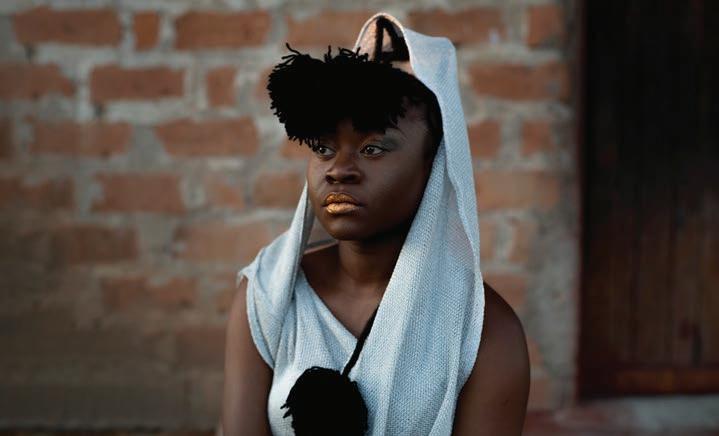
for
this finding-yourself

32 CHICAGO READER - APRIL 2, 2020 ll
Sampa the Great COURTESY HIGH ROAD TOURING
time
all
spiritual shit.”
Find more music listings at chicagoreader.com/soundboard https://www.gofundme.com/f/chop-shop-virtual-beats-amp-eats WE WILL RAISE A GLASS TOGETHER SOO N, CHICAG O. SUPPORT YOUR LOCAL BREWERY FIND OUT HOW : ILLINOISBEER.ORG/BREW-MAP
But we’re in the middle of a life-altering time, when spiritual shit might be something we need. It’s hard not to feel grateful when Sampa and London collective Steam Down end “Summer” by singing “I’m not afraid” in ascending harmonies—the power of their voices together makes you believe their message.
—NOAH BERLATSKY
Stuck, Change is Bad Born Yesterday
stuckchi.bandcamp.com/album/change-is-bad
Workaholic Chicago rocker and audio engineer Greg Obis has suffered through a challenging five years. Both of his parents died (his mother in 2015, his father in 2018), and his ferocious but underrated punk band Yeesh broke up in 2017. That same year, Obis spent time on the road playing bass in indierock outfit Clearance; on long van rides, he’d listen to contemporary postpunk bands like Uranium Club and Omni, who tussle with rawboned guitars and relentlessly driving. Obis caught the bug and set about forming Stuck, eventually enlisting three local musicians: drummer Tim Green (Furbie), bassist David Algrim (Gentle Heat), and guitarist Donny Walsh (Surveillance, Krozer). The band’s new debut album, Change Is Bad (out on Obis’s label, Born Yesterday), builds tension without ever boiling over, offsetting its fury with catharsis—but the fury is intense enough that you wouldn’t want your ears on the line if these guys ever lose control. Obis evokes his battered exhaustion with lyrics delivered in a pointed talk-singing style, which sometimes bleeds into serrated howls that energize the band’s precise, propulsive playing. The darkest moments of these songs can gnaw at your psyche, but Obis and company emerge sounding like a Golden Gloves boxer a er 12 bloody rounds—bone-tired but undefeated. —LEOR GALIL
 Thom Yorke, Anima
Thom Yorke, Anima
MUSIC

Thom Yorke may be best known as front man of legendary British art-rock group Radiohead, but he’s also amassed an impressive discography on his own, putting out several solo releases, a 2013 album with his side group Atoms for Peace, and the score for 2018’s Suspiria remake. His third album under his own name, last year’s Anima, is the best expression of his musical philosophy yet. While Radiohead has long incorporated dance music, Yorke fully commits to electronica in his outside work. Anima consists of instrumental sketches edited down to nine tracks by producer Nigel Godrich. The resulting tight mix of dubby bass lines and beat machines is reminiscent of the self-titled 2011 album by Yorke collaborator Sbtrkt. Anima is best heard from start to finish; the way its rhythms and synths bleed into each other makes it feel like a masterful DJ set.
Even when the percussion is stripped away, Yorke still has his sharp pen and otherworldly voice. On “Dawn Chorus,” a lyrical collage of trite everyday phrases (“If you could do it all again,” “Back up the cul-de-sac”) is imbued with pathos by yearning keyboards. With its complex mood, this anxious hymn recalls Radiohead’s best work—it feels like suppressing grief and fear in order to find enough peace to get through another day. Yorke’s character in the three-song short film for Anima (directed by Paul Thomas Anderson and streaming on Netflix), begins and ends the production in the London Underground, which when it debuted last summer still unambiguously symbolized the claustrophobia of modernity’s grind. Given that London mayor Sadiq Khan has warned that Tube travel will lead to more COVID-19 infections, the sight of commuters on a packed train car may soon be enough to inspire nostalgia—an irony befitting one of Yorke’s songs.

pleaserecycle thispaper

APRIL 2, 2020 - CHICAGO READER 33
XL xlrecordings.com/buy/thomyorke-anima
—JACK
RIEDY v
Stuck VANESSA VALADEZ
EARLY WARNINGS
be honored, 18+ Steve Dawson & Funeral Bonsai Wedding with Quartet Parapluie, Louis Bardales 6/21, 8 PM, Maurer Hall, Old Town School of Folk Music, rescheduled b
Stephen Day, Manny Torres, Carly Bannister 10/28, 8 PM, Schubas, rescheduled; tickets purchased for the original date will be honored, 18+ Dead Can Dance, Agnes Obel 4/29, 7:30 PM, Chicago Theatre, postponed until a date to be determined b
Dirty Projectors, Tasha 6/3, 8:30 PM, Thalia Hall, rescheduled, 17+
Eli 6/3, 7:30 PM, Schubas, canceled
Emo Night Brooklyn 6/26, 10:30 PM, Metro, rescheduled; tickets purchased for original date will be honored, 18+
NEW
Alice Bag, Bacchae 7/15, 8 PM, Beat Kitchen
Amyl & the Sniffers, C.O.F.F.I.N. 10/23, 8:30 PM, Lincoln Hall b Atlantis Quartet 5/27, 9 PM, Hungry Brain
Bendigo Fletcher, Minor Moon 8/12, 8 PM, Schubas, 18+
Brevet 6/3, 8 PM, Beat Kitchen, 17+
Built to Spill 8/12, 8:30 PM, Thalia Hall, 17+
Dead South, Chance McCoy 9/30, 8 PM, House of Blues, 17+
Digitalism 5/13, 8:30 PM, Lincoln Hall, 18+
Ekali 6/20, 8 PM, Concord Music Hall, 18+
Emancipator Ensemble 9/25, 10 PM, House of Blues, 17+
Fakear 5/2, 10 PM, Schubas, 18+ Flora, Uma Bloo, Daymaker 5/23, 9 PM, Hungry Brain
Fukkit, Gizmo, Mkultra, Curta 4/27, 7 PM, Subterranean, 17+ Nubya Garcia 6/18, 9 PM, Sleeping Village
Glorious Sons, Des Rocs 4/29, 6:30 PM, Metro b Terisa Griffin 9/11, 8 PM, the Promontory b
Martin Hayes Quartet 11/13, 8 PM, Maurer Hall, Old Town School of Folk Music b
Horse Massage, Bonzo Terks, Titty Citty 5/19, 8 PM, Schubas F Hrvy 9/23, 6 PM, Chop Shop b
Hunny 8/28, 8 PM, Subterranean, 17+
Jimmy Eat World 8/28, 6:30 PM, Aragon Ballroom b
Wynonna Judd & Cactus Moser 11/10-11/11, 8 PM, SPACE, Evanston b
Dermot Kennedy, SYML 9/21, 7 PM, Aragon Ballroom b
Bonnie Koloc, Ed Holstein 11/6, 8 PM, the Promontory b Jonny Lang 7/10, 8 PM, House of Blues, 17+ V. V. Lightbody, Andrew Sa 5/23, 9 PM, Sleeping Village Gordon Lightfoot 7/14, 8 PM, Copernicus Center b Long Beach Dub Allstars 8/18/2, 8 PM, Beat Kitchen, 17+ Jordan Mackampa 11/14, 7:30 PM, Schubas b Maybe April 7/17, 8 PM, City Winery b
Meth, Seizures, Droughts 5/30, 6:30 PM, Subterranean, 17+
Mdou Moctar, Steve Gunn 10/2, 10 PM, Empty Bottle, on sale Fri 4/3, 10 AM
Moneybagg Yo 7/21, 7:30 PM, the Vic, 18+ Monochrome Set, Jetbeats 9/6, 6:30 PM, Bananna’s Comedy Shack at Reggies’ Monophonics, Paul & the Tall Trees 10/9, 9 PM, Chop Shop, 18+
New Orleans Cocktail Party featuring Jon Cleary 10/29, 7 PM, Dawes House, Evanston Joshua Radin, Heather Maloney 8/17-8/18, 8 PM, City Winery b Reagan Youth 6/19, 8 PM, Reggies’ Music Joint Chris Renzema, Ry Cox 10/25, 8 PM, SPACE, Evanston b Robotaki 5/1, 9 PM, Chop Shop, 18+
Sleaford Mods 10/7, 8:30 PM, Lincoln Hall, 18+ Stand Atlantic, Trash Boat 6/27, 7 PM, Reggies’ Rock Club b
Subdudes 10/15-10/16, 8 PM, City Winery b This Must be the Band, Phenom & Emcee Skool 6/5, 8 PM, Riviera Theatre, 18+ Dale Watson, Bama Lamas 9/24, 8 PM, FitzGerald’s,
Berwyn Hayley Williams, Arlo Parks 6/26, 8 PM, House of Blues b Witch Mountain, Reivers, 6/12, 9 PM, Sleeping Village Wonder Years 7/13, 5 PM, Concord Music Hall b Young Dolph, Key Glock 8/22, 8 PM, the Vic, 18+
UPDATED
NOTE: This is a selection of the many concerts have been canceled or postponed in light of ongoing concerns about COVID-19. We suggest that you contact the point of purchase if you need information about refunds, ticket exchanges, or postponed concert dates.
Snoh Aalegra 4/19, 6:30 PM, Riviera Theatre, canceled David Archuleta 7/31, 6 and 9 PM, City Winery, rescheduled, show added b August Hotel 4/14, 9:30 PM, Sleeping Village, postponed until a date to be determined Ryan Beatty 5/1, 7:30 PM, Park West, canceled Bent Knee 4/11, 9 PM, Sleeping Village, postponed until a date to be determined Russell E.L. Butler 4/11, 10 PM, Smart Bar, postponed until a date to be determined Camelphat 4/17, 10 PM, Radius Chicago, postponed until a date to be determined, 18+ Chicano Batman 5/9, 8 PM, Concord Music Hall, postponed until a date to be determined, 18+ Dabin, Last Heroes 4/11, 9 PM, Concord Music Hall, postponed until a date to be determined; tickets purchased for original date will
Flora Cash, Beau Young Prince 7/25, 7:30 PM, Lincoln Hall, rescheduled; tickets purchased for original date will be honored b Sarah Harmer 5/15, 8 PM, Szold Hall, Old Town School of Folk Music, postponed until a date to be determined b James Hunter Six 4/9, 8 PM, City Winery, postponed until a date to be determined b Jayhawks, Mastersons 11/14, 8 PM; 11/15, 3:30 and 7 PM, Maurer Hall, Old Town School of Folk Music, rescheduled; both 11/15 shows sold out b JoJo 12/7, 7:30 PM, the Vic, rescheduled; tickets purchased for original date will be honored b King Gizzard & the Lizard Wizard, Leah Senior 10/29, 7 PM, Radius Chicago, rescheduled, 17+ Lil Smokies 4/17, 7:30 and 10:30 PM, Schubas, postponed until a date to be determined, 18+ Liz, Adam Kra 4/20, 9 PM, Schubas, postponed until a date to be determined, 18+ Manic Focus, 4/18, 8 PM, Riviera Theatre, postponed until a date to be determined, 18+ John McCutcheon 10/16, 5 PM, Szold Hall, Old Town School of Folk Music, rescheduled b Jon McLaughlin 10/11, 8 PM, SPACE, Evanston, rescheduled b
Melkbelly, Facs, CB Radio Gorgeous 8/15, 9 PM, Sleeping Village, rescheduled Mighty Oaks 4/9, 8 PM, Subterranean, canceled, 17+ Mika 4/27, 7:30 PM, Riviera Theatre, canceled
Juana Molina 4/30, 8 PM, Maurer Hall, Old Town School of Folk Music, postponed until a date to be determined b John Moreland, S.G. Goodman 8/13, 8:30 PM, Thalia Hall,
rescheduled, 17+
The Music of Cream featuring Kofi Baker & Will Johns 8/23, 7:30 PM, Park West, rescheduled; tickets purchased for original date will be honored, 18+
Off With Their Heads, Slingshot Dakota, Time Thieves 9/26, 8 PM, Subterranean, rescheduled and moved to a new venue, 17+ Overcoats 4/14, 8:30 PM, Lincoln Hall, postponed until a date to be determined, 18+ Paul Cebar Tomorrow Sound, Western Elstons 9/4, 8:30 PM, FitzGerald’s, Berwyn, rescheduled Platinum Boys, New Primals, Absolutely Not 4/16, 9:15 PM, Empty Bottle, canceled Portland Cello Project presents Purple Reign 9/29, 8 PM, SPACE, Evanston, rescheduled; tickets purchased for original date will be honored b

Katie Pruitt, William Prince 4/10, 10 PM, SPACE, Evanston, postponed until a date to be determined b Rage Against the Machine 5/19-5/20, 8 PM, United Center, postponed until a date to be determined b Random Rab, Canter 8/13, 9 PM, Sleeping Village, rescheduled Rascal Flatts 8/27, 7:30 PM, Hollywood Casino Amphitheatre, Tinley Park, rescheduled; tickets purchased for original date will be honored b Rookie 9/11, 10 PM; 9/12, 9:15 PM, Empty Bottle, 9/11 sold out
Maggie Rose, Them Vibes 7/11, 8 PM, SPACE, Evanston, rescheduled b Sampa the Great 9/28, 9 PM, Schubas, rescheduled; tickets purchased for the original date will be honored, 18+ Carolyn Sills Combo 4/12, 6 PM, SPACE, Evanston, canceled Silverstein 8/7, 6 PM, Concord Music Hall, rescheduled; tickets purchased for original date will be honored, 17+ Bria Skonberg 7/12, 7 PM, SPACE, Evanston, rescheduled; tickets purchased for original date will be honored b Spanish Love Songs, Future Teens, Dollar Signs 7/25, 7 PM, Cobra Lounge, rescheduled, 17+ v
GOSSIP WOLF
ON SATURDAY, Tenci front woman Jess Shoman released Days Go By , a benefit compilation that features a dazzling array of Chicago indie rockers, including Fran, Sima Cunningham (of Ohmme), Izzy True, Mia Joy, Liam Kazar, and Gia Margaret (who collaborated with Dan Wriggins of Philadelphia band Friendship). Proceeds from the 19-track album go to Black- and trans-led Hyde Park LGBTQ+ center Brave Space Alliance , which provides “for-us by-us resources, programming, and services” on the south and west sides, and to the Chicago chapter of prison-abolition organization Black & Pink, which provides support for queer and trans inmates in Illinois. Shoman has uploaded Days Go By to Bandcamp as a “name your price” album, and you can’t give too much for it!
Ester bandleader Anna Holmquist is a kick-ass songwriter, though you might not know it from their hilarious Bad Songwriter Podcast , which features local guests (Nnamdi Ogbonnaya, Ratboys’ Julia Steiner) sharing their wince- inducing early efforts. Last week, Ester—which includes cellist Katelyn Cohen, guitarist Chris Colson , drummer Raul Cotaquispe , synth player Chris Harris, and bassist Tim Newsum —dropped the album Turn Around , and it’s winsome, not wince inducing. Holmquist spills tales of woe and perseverance over atmospheric, jazzy indie pop. When Ester finally play their postponed record-release show at the Hideout, Gossip Wolf will be first in line!
On Friday, February 21, local dance-pop juggernaut Pixel Grip played an epic set as part of the MCA ’s Soundtrack series. They’ve since dropped a tasty recording of that show—more than an hour of thumping hot-goth jams, including a deliriously dubbed-out version of “Diamonds” that’ll probably remind you what it’s like to actually party with your friends in real life. Downloads are available now, and a limited cassette version should be available by May; you can order either via Bandcamp.
—J.R. NELSON AND LEOR GALIL
Got a tip? Tweet @Gossip_Wolf or e-mail gossipwolf@chicagoreader.com.

34 CHICAGO READER - APRIL 2, 2020 ll
Never miss a show again.
Sign
up for the newsletter at chicagoreader. com/early
Amyl & the Sniffers
ELLEN
VIRGONA
A furry ear to the ground of the local music scene
CHICAGO SHOWS YOU SHOULD KNOW ABOUT IN THE WEEKS TO COME b ALL AGES F
WOLF BY KEITH
HERZIK


































APRIL 2, 2020 - CHICAGO READER 35 STAY HEALTHY. STAY SAFE. THE MAGIC WILL BE BACK. chicagomagiclounge.com 175 N Ada Street, Suite 200, Chicago, IL 60607 Chicago's Free Weekly Since 1971 We Couldn't Be Free Without You— Support Community Journalism Find hundreds of Reader-recommended restaurants at chicagoreader.com/food. w Support City Winery & Take Care of Yourself During this Difficult Time Visit www.citywinery.com/chicago for more information. thank you for your support! Help our employees with a donation, big or small Check out our carryout menu Let Us Feed You Produced in Chicago Available for pickup or delivery to your home Enjoy Our World-Class Wines Relief Fund
CORONAVIRUS
Profits over people
America’s dangerously inefficient response to COVID-19 is what happens when plutocrats—not politicians—direct public policy.
By LEONARD C. GOODMAN
The novel coronavirus is quickly exposing the deadly dysfunction of our national government, which we can all now see represents capital rather than people. The problem is not capitalism per se. As Joe Biden reminds us, the billionaires who fund the campaigns of our leaders “aren’t bad guys.” The problem is that we have allowed these plutocrats to purchase politicians and thereby direct public policy. And the interests and needs of the plutocrats are diametrically opposed to the interests of ordinary working people.
This wasn’t always the case. A half century ago, it could be said that “what’s good for General Motors is good for America.” Back then, industry titans relied on American workers to produce their products and American consumers to buy them. They cared about the health of the nation, and were thus willing to fund things like public schools and infrastructure. They paid decent wages so that their workers could a ord to buy their products.
Today’s plutocrats outsource manufacturing jobs to low-wage countries. They send their kids to private schools, live in gated commu-
nities, fly on private jets, and drink bottled water. They still care about profits and return on investment capital, but today, there is little connection between the health of the nation and the health of Wall Street. Indeed, last week, while a record 3.3 million Americans lost their jobs and fi led for unemployment benefits, the stock market posted some of its largest gains since 1933, as Wall Street anticipated the $4 trillion slush fund that our government will set up to bail out corporate America, even as it continues laying o its workers.
Americans will surely recall that during the past year of a heated contest to determine the Democratic Party’s presidential candidate, we were repeatedly told by the corporate-backed candidates and by the corporate press that our government has no money to pay for Medicare for All, a program favored by a majority of voters. Yet, in the blink of an eye, Congress and the Federal Reserve have startlingly come up with $4 trillion to bail out such essential industries as cruise ships and casinos.
Americans are also quickly learning that our present national health policy, focusing on delivering profits to plutocrats rather than health care to sick people, is particularly ill-equipped to deal with a crisis such as the coronavirus pandemic. Hospitals concerned
with their bottom lines didn’t stockpile masks and ventilators to prepare for a national health crisis. This means that the nurses, doctors, paramedics, janitors, and others on the front line are forced to care for patients carrying a highly contagious disease without basic protections or tools for treatment.

People are genuinely confused about why their government has been so slow to invoke the Defense Production Act to compel American businesses to produce urgently needed products. But our national leaders are accustomed to taking direction from their corporate masters. The corporate lobbyists usually write the legislation, and the think tanks provide the talking points. Our political leaders have forgotten how to lead. When you don’t use a muscle, it atrophies.
Meanwhile, we are waking up to the fact that our pharmaceutical industry has largely abandoned production of lifesaving vaccines and antibiotics in favor of more profitable drugs that must be consumed every day. To further maximize profits, big pharma has outsourced production of its drugs to India and China. And there is now serious concern that supplies of critical medications may soon be disrupted.
The key to stopping the spread of the virus is widespread testing. But while German virologists produced a diagnostic test in January that the World Health Organization shipped in February to nearly 60 countries, the United States was not among them. No o cial explanation has been provided for this inaction. But it is a near certainty that our leaders planned to give a lucrative contract to manufacture test kits to a big donor. As a consequence, most Americans have no access to diagnostic tests and must remain in their homes under conditions of fear and uncertainty.
President Trump’s promise that testing for COVID-19 would be free and treatment a ordable rings hollow without a public health infrastructure to administer tests or treatment. Before this crisis hit, millions of Americans were either uninsured or underinsured and unable to pay their deductibles and copays. Those numbers will surely skyrocket with millions of Americans losing their jobs every week.
This crisis will cause Americans to question why so much of our country’s resources go to support war—more than 60 percent of U.S. discretionary spending by some estimates—rather than solutions to real-world problems like providing health care to the sick, shelter to the homeless, or preventing a climate catastrophe.
Have a strong opinion or perspective you’d like to share? We invite you to send ideas to pitches@chicagoreader.com
While China and Cuba send medical brigades to hard-hit regions of Europe, the richest nation on earth has nothing to o er the world but drones, bombs, and more punitive sanctions. American people desire peace and security. But the war industry demands that our leaders provide zones of conflict and war sufficient to justify the rivers of cash flowing into their pockets. While Americans are waiting for testing kits, N95 masks, and ventilators, members of Congress are urging the Pentagon to buy more F-35 fi ghter jets from their friends at Lockheed Martin, despite the fact that the extravagantly priced planes regularly catch fire and spew toxic fumes. Another priority in Washington is how to move forward with NATO war games near Russia’s borders despite the coronavirus epidemic that has caused other countries to pull out and close roads to troop movements. Meanwhile lobbyists for the aerospace industry are busy looking for ways to fund Trump’s new Space Force.
This crisis demands a change in direction. Continuing to allow plutocrats to direct public policy is equivalent to national suicide. We may never stop money from influencing our politics, but there are simple ways to mitigate the harm. We should demand ethics and conflict-of-interest laws, and enforcement of those laws, to prohibit lawmakers from taking checks from the industries they oversee. We should also demand public financing of campaigns.
Of course, our current Congress will continue to resist reforms. The current system of legalized bribery suits it just fine. But there is one simple way for ordinary Americans to apply pressure, even during times of social distancing. Stop sending your money to politicians who accept corporate funds. If you are unsure about a candidate, go to opensecrets. org, type in the candidate’s name, and click on “campaign finance summary.”
It makes no sense to send your hard-earned money to a politician who is in the pocket of corporations directing them to act for corporate benefit and not yours. Further, your money allows corporate-owned politicians to pretend that they represent ordinary people by highlighting their contributions from small donors. Exposing our leaders as the corporate shills that they are is an important fi rst step toward reform. For the next step, we should demand that politicians appearing on TV wear the logos of their corporate sponsors, like the NASCAR drivers do. v
36 CHICAGO READER - APRIL 2, 2020 ll
@GoodmanLen OPINION MIKA BAUMEISTER / UNSPLASH
Leonard C. Goodman is a Chicago criminal defense attorney and co-owner of the newly independent Reader.
SAVAGE LOVE
No new sex partners
Open
By DAN SAVAGE
Q: My husband and I got married in August of 2019 and we were together for over five years before getting married. I’m very happy and love him with all my heart. We don’t fight, we just have some tiffs here and there. The kicker is that I have a tough time feeling him during sex and he doesn’t last as long as I would like him to. We’re adventurous enough to try different things, but I find myself sexually unfulfilled. He also isn’t very willing/ interested in going down on me. I’m also finding myself attracted to and fantasizing about other men. I’m not opposed to opening up a marriage but I worry that I’m just being selfish and that it’s too soon to try or even discuss it at any length. I did bring up a crush I have on a coworker and my husband said, “There’s nothing wrong with having a snack.” What did he mean? —MARRIED NOT DEAD
A: “In this time of a global
pandemic, thinking and talking about nonmonogamy is all you can do right now,” said Tristan Taormino, author of Opening Up: A Guide to Creating and Sustaining Open Relationships. “This goes for everyone: no new sex partners until public health experts say we can go back to standing closer than six feet apart.” Listen up, people: the woman who literally wrote the book on open relationships says open and poly relationships are cancelled for the time being.
While COVID-19 isn’t classified as a sexually transmitted infection (STI), having sex with someone who has coronavirus would almost certainly result in transmission. And since people who get infected typically don’t show symptoms for up to two weeks, the fact that someone appears to be healthy doesn’t mean they are corona-free. So if you have more than one sex partner and you’re all staying in the same place, great! But we shouldn’t be hooking up with new partners in per-
son or going to see established partners we don’t live with. That goes double for meeting up with non-cohabiting partners who have other partners and whose other partners have other partners of their own. But the good news is that sext messages and dirty video chats are both allowed. Hell, get the whole polycule together on Zoom—just don’t actually get together (or get under) anyone you don’t live with.
OK! With that out of the way, we’re going to answer your question.
“I’m glad MND is being honest with her husband about her desires, but let’s take that further with even more specific talk about what’s missing in her sex life,” said Taormino. “In her letter, I heard: pussyeating, intense enough sensation from intercourse, and longer sex sessions. I’ll translate that: she’s missing pleasure, reciprocation, and orgasms for her. She is NOT being selfish for wanting these things. They are pretty fun-
damental aspects of a sexual relationship, and she needs to address them with her husband first.”

It would seem that going without oral is the price of admission you’re willing to pay to be with this guy. As for your other issues, the right toys could certainly help. But if your husband ruled out penetration toys that were bigger than his cock, or if you didn’t order any that were bigger than his cock to avoid hurting his feelings, you’re gonna have to broach the subject of buying some larger toys. And since experimenting with new positions didn’t help your husband last longer, you should try alternating
between toys and his cock during PIV, which will make both the sex (and the husband) last longer.
I wouldn’t advise most people to initiate the open-relationship convo now. Because if it goes badly, that could mean sheltering in place with an angry person. But I think you could risk discussing opening up while you’re locked down. Your husband didn’t say there was nothing wrong with fantasizing about a snack, he said there’s nothing wrong with having a snack. That’s not a green light to immediately outsource getting your pussy eaten. But his calm, matterof-fact reaction is a good
sign.
But first you need to work with your husband on improving your sex life at home.
“Exploring nonmonogamy is one way to address sexual incompatibilities and expand our capacity for love and intimacy,” said Taormino. “But the stuff between the two of them needs to get talked about first. Otherwise, you’re glossing over the issues with something new and shiny.” v
Send letters to mail@ savagelove.net. Listen to the Savage Lovecast every week at savagelovecast. com.

APRIL 2,
2020 - CHICAGO RE
A
DER
37
and poly relationships are canceled, unless your lovers live with you.
OPINION
@fakedansavage
CLASSIFIEDS
JOBS GENERAL
(Buffalo Grove, IL) Yaskawa America, Inc. seeks Senior Industrial Engineer w/ Bach or for deg equiv in IE & 5 yrs exp in job offered or eng exp in ISO cert manuf envir. Also acceptable Mast deg in IE & 1 yr exp in job offered or in ISO cert manuf envir. Must have 1 yr exp w/ manuf concepts such as fact layout, line balan, wrkflw analy, capac analy, employ train, 5S, cost analy; bus oper incl prod plan, sched, MRP, ATP & capac plan; Prod Data Mngmnt & impact on sup chain mngmnt; ergon princ & perform ergon risk assess & ISO 9001:2015 stnds & compl reqs, gener & maint proced, wrk instruc & forms. Occas dom trvl reqd. Apply to HR 2121 Norman Drive South, Waukegan, IL 60085
UDP and Web Sockets; (3) Knowledge of continuous integration and deployment tools and concepts; (4) Technical Architecture Design Documentation including experience with UML diagram and software architecture documentation tools; (5) Experience with cloud platforms and serverless functionality Azure/ AWS; and (6) Knowledge of Agile and Scrum Development Practices. Up to 15% domestic and/or international travel required. Apply online at http://www. chamberlaingroup.com/ careers/ Refer to Job ID AL20
Northwestern Memorial Healthcare seeks Medical Laboratory Scientists for Chicago, IL to perform test procedures in a clinical laboratory.
LEGAL NOTICES
This letter is to notify that on April 25, 2020 at 9:30 a.m. an auction will be held at 83rd & Halsted Self Storage, Inc., located at 8316 S. Birkhoff Ave, Chicago, IL 60620, to sell the following articles held within said storage units to enforce a lien existing under the laws of the state of Illinois.
1247 Lisa Moore 459 Michelle Camphor
Ragnar Benson Construction Company, an Equal Opportunity Employer, Chicago, IL 60606 is seeking certified DBE for subcontracting and vendor opportunities for the CTA Project MC-024 Dan Ryan Line - Inverters and Batteries Project located in Chicago, IL to work on the following areas: Demolition, Structural & Misc. Steel, Carpentry, Painting and Electrical. Subcontracts will be awarded based on price and ability to perform work. The utmost consideration will be given to dividing total re

quirements into smaller activities or quantities, which will permit maximum participation where feasible. Please contact RAGNAR BENSON attention Kasia Popa at - estimating@rbic. com or at 312-764-6600 to discuss subcon tracting opportunities and to obtain plans, spec ifications, Q&A Clarifications. Please submit all bids no later than April 29th, 2020 at 12PM. The bid will be publicly opened by CTA on May 1st, 2020 at 3:00PM.
ATTENTION
If you are a former 10/1/99 CHA leaseholder who has an interest in exercising your right to return, please read the information listed below.
JOBS
Hyatt Corporation seeks a Senior Application Developer in Chicago, IL to build, enhance and provide application support for applications for specific projects. BS & 3 yrs or 5 yrs exp only. To apply submit cover letter and resume to: Hyatt Corporation, Attn: Steven Gibbs, 150 N Riverside Plaza, Floor 14, Chicago, IL 60606
Chamberlain Group seeks Manager, Software Development to work in Chicago and Oak Brook, IL to apply software engineering knowledge to day-today management of a team related to software development and implementation of myQ Business middleware software. Must have Bach degree or foreign equiv in Comp Sci, Comp Engg or a related field + 5 yrs exp in the job offered or Developer, Software Engineer, Programmer Analyst or a role within software development. Must have exp: (1) Software development including knowledge of .NET 4+ and the Microsoft Technology Platform, SQL Server and at least one ORM (e.g. Entity Framework), MVC, WCF, LINQ and Web Forms; (2) Web fundamentals including knowledge of communication interfaces: REST, JSON, Web Services and XML, Internet protocols and web server communications including HTTP, TCP,
Bachelor’s in Medical Tech/Laboratory Sci/ Clinical Laboratory Sci/ Chem/Bio/Allied Health qualifying applicant for ASCP certification examination req’d. ASCP MLS/MT req’d(ASCPi also accepted) req’d.
Drug Test & Background Check req’d. Apply online: https://jobs. nm.org Requisition ID: REF5446A EOE
MARKET PLACE ADULT SERVICES
Danielle’s Lip Service, Erotic Phone Chat. 24/7. Must be 21+.
Credit/Debit Cards
Accepted. All Fetishes and Fantasies Are Welcomed. Personal, Private and Discrete. 773-935-4995
PERSONALS
Dominick D. rocks popstars Camilia C. Shawn M. J Bieber, Tore & I, Billie Eilish Yeah. Yeah. Yeah. H. Quinn, JoJo S. Lady G. Britney S. K. Clarkson.
Prime Minister is Tracy Guns, GNR, Aerosmith B. Sabbath. M Crue, ACDC, S. Vai Love, Britney Beach GNR 312.206.0867 773.323.5173
This letter is to notify that on April 25, 2020 at 9:30 a.m. an auction will be held at Hyde Park Self Storage, Inc., located at 5155 S. Cottage Grove Ave, Chicago, IL 60615, to sell the following articles held within said storage units to enforce a lien existing under the laws of the state of Illinois.
205 Kathy Webb 10152 Nicole Burgest
This letter is to notify that on April 25, 2020 at 9:30 a.m. an auction will be held at South Shore Self Storage, Inc., located at 7843 S. Exchange Ave, Chicago, IL 60649, to sell the following articles held within said storage units to enforce a lien existing under the laws of the state of Illinois.
314 Donald Haughton S025 Adrina Hull 106 Cortez Glen N008 Nicole Watson 111 Whitney Thompson 550 Randy Anderson 526 Phillips Smart 461 Larissa Johnson 263 Orita S.D.P.C.
This letter is to notify that on April 25, 2020 at 9:30 a.m. an auction will be held at Aaron Bros. SelfStorage, Inc., located at 4034 S. Michigan Ave, Chicago, IL 60653, to sell the following articles held within said storage units to enforce a lien existing under the laws of the state of Illinois.
Brian McCoy
Janice Wilson
McCoy
Douglass
Adkins
Minefee
Murray
Frazier
Krick
The Draft Tenant Selection Plan (TSP), Lease, and other documents that will apply to residentoccupancyatEmmettStreetApartmentsareavailableforreviewandcomment.
Emmett Street Apartments located in the Logan Square community area, Chicago, IL. Units within this devel opment will be available for eligible 10/1/1999 leaseholders who have yet to satisfy their right of return under the Relocation Rights Contract and eligible public housing applicants. The Chicago Housing Authority (CHA), to bring addition affordable housing opportunities to Logan Square has worked in consultation with the developer to draft a TSP and Lease for use at Emmett Street Apartments.
The 30-day public comment period will be held for CHA to receive oral and written comments on March 17, and ends April 15, 2020. While CHA encourages and welcomes all residents and the communi ty-at-large to review the proposed updates to the TSP and attend the hearing, you are not required to attend the public comment hearing to submit comments.
The date, time, and location of the public comment hearing is as follows:
• April 1, 3:00pm: Logan Square Library, 3030 W Fullerton Ave
Public housing residents and the public may submit comments on Emmett Street Apartments Draft TSP, Lease, and other documents during the public comment period. All comments must be received by April 15, 2020.
CopiesofEmmettStreetApartmentsTSP,Lease,&otherdocumentswillbeavailablebeginningMarch 17 through April 15, 2020 at the following locations:
• CHA and HCV Administrative Offices 60 E Van Buren St
• Family Investment Center (FIC) 4859 S Wabash St
• Central Advisory Council Office 243 E 32nd St
• HCV Regional Office – South 10 W 35th St
• HCV Regional Office – West 1850 S. Albany • www.thecha.org
Mail, E-mail or Fax comments to: Chicago Housing Authority Attention: Emmett Street Apartments Draft TSP & Lease 60 E. Van Buren Street, 12th Floor Chicago, IL 60605 commentontheplan@thecha.org Fax 312. 913.7837
If you have a question about this notice, please call the CHA at 312.913-7300. To request a reasonable accommodation, please call 312.913.7062. TTY 866.331.3603

38 CHICAGO READER - APRIL 2, 2020 ll
ADMINISTRATIVE SALES & MARKETING FOOD & DRINK SPAS & SALONS BIKE JOBS GENERAL REAL ESTATE RENTALS FOR SALE NON-RESIDENTIAL ROOMATES MARKETPLACE GOODS SERVICES HEALTH & WELLNESS INSTRUCTION MUSIC & ARTS NOTICES MESSAGES LEGAL NOTICES ADULT SERVICES
544
318
117 Brian
415 Krika
617 Reggie
335 Diannah
304 Dianna
584 Brian
312 Elliott
WANT TO ADD A LISTING TO OUR CLASSIFIEDS? E-mail classified-ads@chicagoreader.com with details or call (312) 392-2970
chicagoreader.com/donate We Couldn't Be Free Without You— Support Community Journalism Chicago's Free Weekly Since 1971


















APRIL 2, 2020 - CHICAGO READER 39 FINANCING AVAILABLE Licensed, Bonded & Insured—IL Roofing Lic. #104.013526 For 40 years, 30,000+ satisfied customers have trusted Second City. • ROOFING • BRICKWORK • GARAGES SHINGLE ROOFS NEW GARAGESFLAT ROOFS ROOFING, GUTTERS & MORE the platform The Chicago Reader Guide to Business and Professional Services www.herreralandscapeschicago.com DISCOVER YOUR BLISS www.intimate-bliss.com *WARNING: Must be 18 years or older to visit website and/or place order. To advertise, call 312-392-2934 or email ads@chicagoreader.com SAVE BIG ON A NEW HVAC SYSTEM FINANCING AVAILABLE CREDIT CARS ACCEPTED Up to $2,500 savings for a limited time! Call today for a free estimate! 773-895-2797 | www.MironHVAC.com -Energy Efficient -Innovative comfort features -Great maintenance contracts -24-Hr Emergency Service Psychic ReadingsPalm and Tarot If you are worried, troubled, sick or unhappy through love, business, marriage, luck or whatever your problem may be, I have reunited the separated, healed the sick and help many people with money problems. Whereothershavefailed.Ihave succeeded. I will not ask what you came in for. I will tell you. (773)-540-5037 1222 E 47th St She guarantees to help you. No problem is too big for her COLLABO TIVE PREMARITAL FAMILY DIVORCE MEDIATION Brigi e Schmidt Bell, P.C. Lawyers@bsbpc.com 312-360-1124 BrigitteBell.com Convenient Chicago & Evanston O ces travel home improvementpsychic real estate advertising books romance legal funeral services entertainment YOUR AD HERE pleaserecyclethispaper



Proceeds will be split between the Reader and the more than 50 artists who contributed illustrations. $30 for PDF download $45 for limited edition printed book and PDF download Provide your name and mailing address and say this is for a coloring book on the memo line. Rachal Duggan Instagram:@RADillustrates • Website: rachalduggan.com 48 WhitneyWassonInstagram:@soberrabbit • Twitter:@boozetornado • Website:thewhitneywasson.com 22 ChicagoReaderColoringBook Or send checks to: Chicago Reader Suite 102 2930 S. Michigan Avenue Chicago, Illinois 60616 For copies of this book, either in PDF form or as a printed book, see: chicagoreader.com/coloringbook
































































 no.
no.
































 By DEANNA ISAACS
By DEANNA ISAACS












































 By BRIANNA WELLEN
By BRIANNA WELLEN












 By BEN SACHS
By BEN SACHS







 By JACK HELBIG
By JACK HELBIG


























































 Thom Yorke, Anima
Thom Yorke, Anima























































